

The Constitution of Pakistan, 1973
Introduction.
The Constitution of Pakistan, 1973, is a landmark document that defines the political, legal, and administrative framework of Pakistan. It is the supreme law of the country, reflecting the aspirations and values of its people. Promulgated on August 14, 1973, this constitution has played a crucial role in shaping Pakistan’s governance, ensuring the protection of fundamental rights, and maintaining the balance of power among various state institutions.
Historical Context
The Constitution of 1973 came into existence following a tumultuous period in Pakistan’s history. After the disintegration of East Pakistan in 1971 and the creation of Bangladesh, Pakistan needed a new constitutional framework to address the political, social, and economic challenges it faced. The previous constitutions of 1956 and 1962 had been abrogated due to political instability and military interventions. The need for a robust and representative constitution was paramount to restore democracy and ensure national cohesion.
Drafting and Promulgation
The drafting of the 1973 Constitution was a collaborative effort involving representatives from all provinces and political parties. The Constituent Assembly, under the leadership of Prime Minister Zulfikar Ali Bhutto, undertook the task of drafting a constitution that would be acceptable to all segments of society. The process involved extensive debates, negotiations, and compromises to address the diverse interests and concerns of various stakeholders.
On April 10, 1973, the Constituent Assembly passed the draft constitution, and it was officially promulgated on August 14, 1973. The Constitution of 1973 replaced the interim constitution of 1972 and established a parliamentary system of government.
Key Features of the Constitution
The Constitution of Pakistan, 1973, is a comprehensive document consisting of 280 articles and several schedules. Some of its key features include:
1. Parliamentary System
The constitution established a parliamentary system of government, with the Prime Minister as the head of government and the President as the head of state. The Prime Minister is elected by the National Assembly and is responsible for running the affairs of the government.
2. Federal Structure
The constitution created a federal structure, dividing powers between the federal government and the provinces. It enumerated the subjects under the federal, provincial, and concurrent legislative lists, ensuring a distribution of authority and responsibilities.
3. Fundamental Rights
One of the most significant aspects of the 1973 Constitution is the inclusion of a comprehensive chapter on fundamental rights. These rights include freedom of speech, freedom of movement, freedom of assembly, and protection from discrimination. The Constitution also guarantees the right to a fair trial, protection of property, and the right to education.
4. Islamic Provisions
The constitution emphasizes the role of Islam in the governance of the country. It declares Pakistan an Islamic Republic and mandates that all laws must be in conformity with the teachings of Islam as outlined in the Quran and Sunnah. It also establishes the Council of Islamic Ideology to advise the legislature on Islamic matters.
5. Judiciary
The constitution provides for an independent judiciary, with the Supreme Court as the highest judicial authority. It outlines the jurisdiction and powers of the Supreme Court, High Courts, and other subordinate courts. The judiciary is tasked with upholding the constitution and ensuring the rule of law.
Amendments and Changes
Since its promulgation, the 1973 Constitution has undergone several amendments to address evolving political, social, and economic needs. Notable amendments include the Eighth Amendment (1985), which increased presidential powers, and the Eighteenth Amendment (2010), which devolved powers to the provinces and restored parliamentary supremacy.
The Constitution of Pakistan, 1973, is a foundational document that has played a pivotal role in shaping the country’s political and legal landscape. It reflects the aspirations of the people for democracy, justice, and equality. Despite challenges and amendments, the constitution remains a symbol of Pakistan’s commitment to democratic governance and the rule of law. Understanding its key features and historical context is essential for appreciating its significance in Pakistan’s history.
Leave a Comment Cancel reply
Save my name, email, and website in this browser for the next time I comment.
You cannot copy content of this page
- Wednesday, 18 December 2024

Fundamental Rights in the Constitution of Pakistan 1973
- May 4, 2024

Incorporating a comprehensive framework of Fundamental Rights, the Constitution of Pakistan 1973 safeguards the rights and liberties of its citizens. These rights form the bedrock of a democratic society, promoting equality, justice, and tolerance. With a focus on empowering individuals and fostering a fair and inclusive society, the Constitution guarantees a range of fundamental rights, including the right to life, liberty, and equality before the law. It also upholds freedom of speech, expression, and religion.
This article explores the fundamental rights enshrined in the Constitution of Pakistan 1973, shedding light on their significance and impact on the lives of the people. We delve into the historical context and explore how these rights have evolved over the years. By analyzing landmark cases and legal precedents, we provide insights into the practical application of these rights and the challenges that arise in their implementation. Join us as we navigate the core principles that underpin Pakistan's legal framework and strive for a more just and inclusive society for all its citizens.
Understanding Fundamental Rights
Fundamental rights are the basic rights and freedoms that are inherently granted to individuals by their humanity. They are essential for the protection and well-being of individuals within a society. In the context of the Constitution of Pakistan 1973, fundamental rights are enshrined in Part II, Articles 8 to 28. These rights are considered fundamental because they are essential for the full development and realization of human potential.
The Constitution recognizes that every individual has the right to life, liberty, and security of person. This right ensures that no one can be arbitrarily deprived of their life or personal freedom. It also guarantees the right to privacy, protecting individuals from unwarranted intrusion into their personal lives. Moreover, the Constitution guarantees equality before the law, prohibiting discrimination based on race, religion, caste, sex, or place of birth. These fundamental rights lay the foundation for a just and inclusive society where every individual is treated with dignity and respect.
Importance of Fundamental Rights in a Democratic Society
Fundamental rights are crucial for the functioning of a democratic society. They serve as a check on the power of the state and protect individuals from arbitrary actions. By guaranteeing certain freedoms and liberties, fundamental rights empower individuals to participate fully in the democratic process and express their opinions without fear of reprisal. They provide a framework for a fair and just society where everyone has equal opportunities and protections.
In Pakistan, the Constitution's fundamental rights have played a pivotal role in promoting social justice and inclusivity. These rights ensure that the principles of equality, non-discrimination, and social justice are upheld. They enable citizens to challenge unfair practices and laws and seek redress for any violation of their rights. Without fundamental rights, individuals may be vulnerable to abuse and oppression, and the democratic fabric of society could erode.
Evolution of Fundamental Rights in the Constitution of Pakistan 1973
The Constitution of Pakistan 1973 was not the first attempt to codify fundamental rights in the country. The 1956 and 1962 Constitutions also included provisions for fundamental rights, but they were limited in scope and subject to restrictions. It was not until the Constitution of Pakistan 1973 that a comprehensive framework of fundamental rights was established.
The Constitution of Pakistan 1973 drew inspiration from various sources, including the Universal Declaration of Human Rights and the Indian Constitution. It sought to create a balance between individual freedoms and the interests of the state. Over the years, the Constitution has undergone amendments and judicial interpretations to further strengthen and clarify the scope of fundamental rights.
Today, the Constitution of Pakistan 1973 guarantees a wide range of fundamental rights, including the right to life, liberty, and security of person; freedom of speech, expression, and association; freedom of religion; and the right to education. These rights are essential for the protection and well-being of individuals and form the basis for a just and inclusive society.
Key Fundamental Rights Guaranteed in the Constitution
The Constitution of Pakistan 1973 guarantees several key fundamental rights that are essential for the protection and well-being of individuals. These rights include:
- Right to Life, Liberty, and Security of Person : Every individual has the right to live with dignity and security. This right protects individuals from arbitrary deprivation of life or personal freedom.
- Freedom of Speech, Expression, and Press : Freedom of speech and expression is vital for the functioning of a democratic society. It allows individuals to express their opinions, ideas, and beliefs without fear of censorship or punishment.
- Freedom of Religion : Pakistan is a diverse country with people from various religious backgrounds. The Constitution guarantees freedom of religion, allowing individuals to profess, practice, and propagate their religion.
- Equality Before the Law : The Constitution ensures equality before the law and prohibits discrimination based on race, religion, caste, sex, or place of birth. This right promotes equal opportunities and protects individuals from unfair treatment.
- Right to Education : Education is a fundamental right that enables individuals to develop their potential and contribute to society. The Constitution guarantees free and compulsory education for children aged 5 to 16.
These fundamental rights provide a framework for a just and inclusive society where everyone is treated with dignity and respect. They empower individuals to challenge injustices and seek redress for any violation of their rights.
Limitations on Fundamental Rights
While fundamental rights are essential for the protection and well-being of individuals, they are not absolute. The Constitution of Pakistan 1973 recognizes that certain limitations can be imposed on these rights in the interest of public order, morality, or national security. These limitations are necessary to strike a balance between individual freedoms and the interests of society as a whole.
However, any limitation on fundamental rights must be reasonable, proportionate, and necessary in a democratic society. The Constitution provides safeguards to ensure that these limitations are not abused or used to curtail individual liberties unjustifiably. The judiciary plays a vital role in interpreting and upholding these safeguards, ensuring that the limitations on fundamental rights are not arbitrary or unconstitutional.
Cases and Controversies Related to Fundamental Rights in Pakistan
Over the years, there have been several cases and controversies related to fundamental rights in Pakistan. These cases have tested the boundaries of fundamental rights and provided an opportunity for the judiciary to clarify and interpret the scope of these rights.
One such landmark case is the case of Munir Ahmed Baloch v. Federation of Pakistan , where the Supreme Court of Pakistan held that the rights guaranteed under the Constitution cannot be suspended or abrogated, even during a state of emergency. This case reaffirmed the supremacy of fundamental rights and established that they cannot be compromised under any circumstances.
Another significant case is the case of Shehla Zia v. Wapda , where the Supreme Court recognized the right to a clean and healthy environment as a fundamental right. This decision highlighted the evolving nature of fundamental rights and the need to interpret them in light of changing societal needs and environmental challenges.
These cases and controversies demonstrate the dynamic nature of fundamental rights and the ongoing struggle to protect and promote these rights in Pakistan.
Efforts to Protect and Promote Fundamental Rights in Pakistan
Despite the challenges and controversies, there have been significant efforts to protect and promote fundamental rights in Pakistan. Civil society organizations, human rights activists, and legal experts have played a crucial role in raising awareness about fundamental rights and advocating for their implementation.
The judiciary, as the guardian of the Constitution, has also played a vital role in protecting and upholding fundamental rights. The Supreme Court of Pakistan, in particular, has delivered landmark judgments that have expanded the scope and protection of fundamental rights. These judgments have set important precedents and guided the interpretation and application of fundamental rights in Pakistan.
The government, too, has a responsibility to protect and promote fundamental rights. Policymakers need to create an enabling environment where fundamental rights are respected, protected, and promoted. This includes ensuring access to justice, eliminating discrimination, and addressing societal challenges that hinder the realization of fundamental rights.
Comparisons with Other Countries' Constitutions
While the Constitution of Pakistan 1973 guarantees fundamental rights, it is interesting to compare these rights with those enshrined in other countries' constitutions. Many constitutions around the world include similar fundamental rights, such as the right to life, liberty, and equality before the law. However, the specific scope and limitations of these rights may vary.
For example, the Indian Constitution also guarantees fundamental rights, including the right to life, liberty, and equality. However, the Indian Constitution has additional rights, such as the right to protection from discrimination on the grounds of religion, race, caste, sex, or place of birth. These additional rights reflect the unique challenges and history of each country and the specific needs of its citizens.
Comparisons with other countries' constitutions can provide valuable insights into the strengths and weaknesses of Pakistan's legal framework and highlight areas for improvement. Lawmakers and policymakers need to learn from best practices and international standards to ensure that fundamental rights in Pakistan are effectively protected and promoted.
Conclusion: The Significance of Fundamental Rights in Pakistan's Constitution
Fundamental rights are the cornerstone of a democratic society. They empower individuals, promote equality, and ensure justice for all. The Constitution of Pakistan 1973 incorporates a comprehensive framework of fundamental rights that are essential for the protection and well-being of its citizens.
By guaranteeing rights such as the right to life, liberty, and equality before the law, freedom of speech, expression, and religion, and the right to education, the Constitution provides a foundation for a just and inclusive society. However, the realization of these rights is an ongoing process that requires constant vigilance, advocacy, and efforts to address the challenges that arise.
As Pakistan strives to become a more just and inclusive society, it is crucial to protect and promote fundamental rights. By upholding these rights, Pakistan can create an environment where every individual is treated with dignity and respect, and where justice and equality prevail. It is through the continued commitment to fundamental rights that Pakistan can truly flourish as a democratic nation.
Comment / Reply From
You may also like.

Impacts of Social Media on Education
Solutions to the conflict in kashmir, human rights violations in india, how to become a judge in pakistan, how to become a good lawyer in pakistan, the importance of understanding the law of inheritance, supreme court: the power of judicial review in pakistan, the law of inheritance in islam, popular posts.

PRINCIPLE OF NATURAL JUST...
- Post By Ata Ur
- March 27, 2021

Powers of High Court unde...
- Post By Pakistan
- May 4, 2023

Comparative study of Cons...
- Post By Muhammad
- April 23, 2024

UK Law Degree in Pakistan
- March 2, 2022
Stay Connected
Subscribe to our mailing list to get the new updates!
PRINCIPLE OF NATUR...
Powers of high cou..., comparative study....
Subscribe to our newsletter
1973 Constitution
Full Text of Constitution of Pakistan in Acrobat (pdf) format.
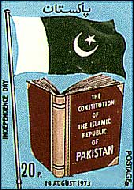
Commemorative stamp issued on the proclamation of the 1973 Constitution
Shaheed Zulfikar Ali Bhutto’s first achievement after coming into power was the preparation of a Constitution for the country. The most prominent characteristic of this Constitution was that it accommodated proposals from the opposition parties and hence almost all the major political parties of the country accepted it. The National Assembly approved the 1973 Constitution on April 10, 1973, and it came into effect on August 14. Shaheed Zulfikar Ali Bhutto took over as the Prime Minister of Pakistan from this date and Fazal Ilahi Chaudhry was appointed as the President of Pakistan.
The Constitution of 1973 opens with a Preamble. This is the preliminary part of the Constitution in which broad features of the Constitution have been explained. The first Article of the Constitution declares Pakistan as a Federal Republic to be known as the Islamic Republic of Pakistan. Islam was declared as the State religion of Pakistan. Pakistan was to be a Federation of four federating Units, Punjab, Sindh, N. W. F. P. and Baluchistan.
The Constitution was parliamentary in nature. Article 41 of the Constitution lay down that the President was to be the Head of the State. The President was to be a Muslim above 45 years of age and was to be elected by a joint sitting of members of the Parliament for 5 years. He could be re-elected but could not hold office for more than two terms. The President was to act on the advice of the Prime Minister of Pakistan. The President could be removed on the grounds of physical or mental incapacity or impeached on charges of violating the Constitution or gross misconduct. The President was authorized to appoint the Attorney General, Judges of Supreme Court and High Courts, and the Chief Election Commissioners. In the Provincial Government, each province was to have a Governor appointed by the President. The appointment of Federal Ministers and Ministers of the State from amongst the members of the Parliament was at the Prime Minister’s disposal.
The 1973 Constitution set up a bicameral legislature at the Center consisting of two Houses, the National Assembly and the Senate. The National Assembly consisted of 200 seats elected directly for duration of five years. The President on the advice of the Prime Minister could dissolve the National Assembly. The Senate was to consist of 63 members; each province was to elect 14 members. In the Provincial Government, each province will have a Governor appointed by the President. The Provincial Assembly for each province consisted of 240 seats for the Punjab, 100 seats for Sindh, 80 seats for N. W. F. P., and 40 seats for Baluchistan.
The 1973 Constitution provided a free and independent Judiciary. The Constitution guaranteed a right to the citizens; to be protected by law, and imposed two duties on them, loyalty to the Republic and obedience to the law. Any person who was found to abrogate or attempt or conspire to abrogate or subvert the Constitution was to be treated guilty of high treason. The Constitution conferred several kinds of fundamental rights to the people such as the right to life, liberty, equality and freedom of speech, trade and association. The Constitution also declared the laws inconsistent with or in derogatory to fundamental rights as null and void.
In light of the previous experience, the Constitution of 1973 was more Islamic in character than the previous ones. Emphasis was made to establish a real Islamic system in all aspects of social life. Keeping this objective in mind, more Islamic provisions were laid down in the Constitution of 1973. The Constitution recognized Islam as the religion of the country and enjoined upon the State to serve the cause of Islam and to bring all existing laws in conformity with Islam. The Islamic Advisory Council was set up to recommend ways and means to bring existing laws of the country in conformity with the Islamic principles.
The Constitution of 1973 remained in force for nearly four years. It was, however, suspended by General Muhammad Zia-ul-Haq, who imposed Martial Law in the country on July 5, 1979. However, General Muhammad Zia-ul-Haq who ran the country with Martial Law passed the Eighth Amendment in the Constitution in 1985. This Amendment empowered the President to dissolve the National Assembly under Article 58(2) b. This Article was later repealed by the Parliament during Nawaz Sharif’s era through Thirteenth Amendment introduced on April 1, 1997. The Thirteenth Amendment was in turn repealed by the Legal Framework Order of 2002, which effectively restored the discretionary powers of the President enacted by the Eighth Amendment.
1973 Constitution…
On 7th April, 1972 the national assembly of Pakistan appointed a committee to prepare a draft of the permanent constitution of Pakistan. A bill to provide a constitution was introduced by the committee in the Assembly on February2, 1973. The Assembly passed the bill on 10th April, 1973 and at last the constitution came into force on 14th August 1973.
The present constitution (1973) provides for the protection and preservation of Islamic Concept of life. It also attempts to propagate and implement the basic teachings of Islam.
Islamic Provisions of 1973 Constitution
The following are the Islamic provisions of 1973 constitution based on the principles of Holy Qur’an and Sunnah.
Official Name
Pakistan shall be known as “Islamic Republic of Pakistan.”
State Religion
Islam shall be the state religion of Pakistan.
Sovereignty Belongs to Allah
Sovereignty over the entire Universe belongs to Almighty Allah and the authority bestowed by him on men is a sacred trust which the people of Pakistan will exercise with the limits prescribed by Qur’an and Sunnah.
Definition of a Muslim
The constitution also gives the definition of a Muslim. A person who believes in Tauheed or Oneness of Allah, and in the prophet hood of Hazrat Mohammad (P.B.U.H) as the last prophet of Allah has described as a Muslim.
A Muslim to be a President and Prime Minister
The constitution laid down that only Muslims shall be elected President and Prime Minister of Pakistan. Non non-Muslim could hold these offices.
Islamic Way of life
Steps shall be given to enable the Muslims of Pakistan to order their lives in accordance with the fundamental principles and basic concepts of Islam.
Promotion of Social Justice and Eradication of Social Evils
The state shall take necessary steps for prosecution of social justice and eradication of social evils and shall prevent prostitution, gambling and taking of injurious drugs, printing, publication, circulation and display of obscene literature and advertisements.
Teachings of Holy Qur’an
The state shall try to make the teachings of Holy Qur’an and Islamic Studies compulsory to encourage and facilitate the learning of Arabic language.
Strengthen Bond with Muslim World
The state shall endeavor to strengthen fraternal relations among Muslim countries in order to promote Islamic unity.
Council of Islamic Ideology
There is a council of Islamic ideology which shall guide the government in respect of Islamic teachings, their implementation and propagation. Its chairman and members are appointed by President. Although its advice is not binding on the government yet it is not easy for any government to ignore or over rule its suggestion or opinion regarding any law.
Error Free Publication of Quran
The government shall endeavor to secure correct and exact printing and publishing of the Holy Qur’an.
Oath to Project and Promote Islamic Ideology
The Federal and Provincial Ministers, the Speaker and Deputy Speaker of the National and Provincial Assemblies, the Chairman of the Senate and the Governors and Chief Ministers of the Provinces also take oath to preserve and protect the Islamic Ideology.
AMENDMENTS TO THE CONSTITUTION
First Amendment:
CONSTITUTION (FIRST AMENDMENT) ACT, 1974
An Act to amend the Constitution of the Islamic Republic of Pakistan [Gazette of Pakistan, Extraordinary, Part I, 8th May 1974]
The following Act of Parliament received the assent of the President on the 4th May 1974 and is hereby published for general information.
Whereas it is expedient to amend the Constitution of the Islamic Republic of Pakistan for the purposes hereinafter appearing .
It is hereby enacted as follows:-
- Short title and commencement
(1) This act may be called the Constitution (First Amendment ) Act ,1974.
(2) It shall come into force at once.
- Amendment of Article 1 of the Constitution.
In the Constitution of the Islamic Republic Of Pakistan hereinafter referred to as the Constitution, in Article 1, for clauses (2), (3) and (4) the following shall be substituted, namely – (2) the territories of Pakistan shall comprise –
(a) the Province of Baluchistan, the North-West Frontier, the Punjab and Sind ;
(b) the Islamabad Capital Territory, hereinafter referred to as the Federal Capital ;
(c) the Federally Administered Tribal Areas; and
(d) such States and territories as are or may be included in Pakistan. whether by accession or otherwise.
(3) Parliament may by law admit into the Federation new States or areas on such terms and conditions as it thinks fit.’’
- Amendment of Article 8 of the Constitution.
In the Constitution, in Article 8, in clause(3) in paragraph (b), after the word “day” at the end , the words “or as amended by any of the laws specified in that schedule” shall be added.
- Amendment of Article 17 of the Constitution. In the Constitution, in Article 17, for clause (2), the following shall be substituted, namely – “(2) Every citizen, not being in the service of Pakistan, shall have the right to from or be member of a Political Party , subject to any reasonable restrictions imposed by law in the interest of the sovereignty or integrity of Pakistan and such law shall provide that where the Federal Government declare that any political party has been formed or is operating in a manner prejudicial to the sovereignty or integrity of Pakistan , the Federal Government shell , within fifteen days of such declaration , refer the matter to the Supreme Court whose decision on such reference shall be final.
(3) Every Political Party shall account for the source of its funds in accordance with law.”
- Amendment of Article 61 of the Constitution.
In the Constitution, in Article 61, after the words “Deputy Chairman” at the end, the words, commas, brackets and figures “ and as if , in the proviso to the said clause (2) of Article 54 for the words ‘ one hundred and thirty ‘ the words ‘ninety’ were substituted ” shall be added.
- Amendment of Article 101 of The Constitution. In the constitution, in Article 101, in clause(3), after the word “ President” at the end, the words and comma “and’ shall be entitled to such salary, allowances and privileges as the President may determine” shall be added.
- Amendment of Article 127 of the Constitution. In the constitution, in Article 127, – (a) in paragraph (e), the word “and” at the end shall be omitted;
(b) in paragraph (f), for the full-stop at the end the semi-colon and word “;and” shall be substituted; and
(c) after paragraph (f) amendment as aforesaid, the following new paragraph shall be added, namely:-
“(g) the said clause (2) of Article 54 shall have effect as if, in the proviso thereto, for the words “one hundred and thirty” the word “seventy” were substituted”.
- Amendment of Article 193 of the Constitution. In the Constitution, in Article 193, in clause (2), after paragraph (c) the following Explanation shall be added, namely – “ Explanation. In computing the period during which a person has been an advocate of a High court or held judicial office, there shall be included any period during which he has held judicial office after he became an advocate or, as the case may be, the period during which he has been an advocate after having held judicial office”.
- Amendment of Article 199 of the Constitution.
In the constitution , in Article 199 , for clause (3), the following shall be substituted, namely – (3) An order shall not be made under clause (1) on application made by or in relation to a person who is a member of the Armed Forces of Pakistan , or who is for the time being subject to any law relating to any of those Forces, in respect of his terms and conditions of service, in respect of any matter arising out of his service, or in respect of any action taken in relation to him as a member of the Armed Forces of Pakistan or as a person subject to such law”.
- Amendment of Article 200 of the Constitution.
In the Constitution, in Article 200, after clause (2), the following new clause shall be added, namely – “ If any time it is necessary for any reason to increase temporarily the number of Judges of a High Court, the Chief Justice of that High Court may require a Judge of any other High Court to attend sittings of the former High Court for such period as may be necessary and, while so attending the sittings of the High Court, the Judge shall have the same power and Jurisdiction as a Judge of that High Court.
Provided that a Judge shall not be so required except with his consent and the approval of the President and after consolation with the Chief Justice of Pakistan and the Chief Justice of the High Court of which he is a Judge”.
- Amendment of Article 209 of the Constitution.
In the constitution, in Article 209, in clause (2), in the Explanation, after words “ Chief Justice “, the words “otherwise than as acting Chief Justice” shall be inserted.
- Amendment of Article 212 of the Constitution.
In the Constitution in article 212 – (a) in clause (1),
(i) For the word “establish” the words “provide for establishment of” shall be substituted and shall be deemed always to have been so substituted; and.
(ii) in paragraph (a) after the word ‘persons’, the words “who are or have been’’ shall be inserted and shall be deemed always to have been so inserted; and.
(b) in clause (2) after the words ‘‘Tribunal extends’’, the following words shall be inserted and shall be deemed always to have been so inserted, namely:- “and all proceedings in respects of any such matter which may be pending before such other Court immediately before the establishment of the Administrative Court or tribunal shall abate on such establishment.”
- Amendment of Article 250 of the Constitution.
In the Constitution, in Article 250, in clauses (1) and (2), the words and comma “ a governor ,”, wherever occurring., shall be omitted.
- Amendment of Article 259 of the Constitution. In the constitution, in Article 259, – (a) in clauses (2), after the word “ gallantry”, the comma and words “ meritorious service in the Armed Forces” shall be inserted; and
(b) in clause (3) after the word “ gallantry” , the comma and words “ meritorious services in the Armed Forces” shall be inserted and shall be deemed always to have been so inserted.
- Amendment of Article 260 of the Constitution.
In the Constitution, in Article 260, in clause (1), – (a) after the definition of the “Chairman” , the following new definition shall be inserted, namely – “Chief Justice”, in relation to the Supreme Court or a High Court, includes the Judge for the time being acting as Chief justice of the Court ;“ and
(b) In the definition of “service of Pakistan” , after the words “Provincial Minister” , the commas and words “ , Attorney-General, Parliamentary Secretary“ shall be inserted.
- Amendment of Article 272 of the Constitution.
In the Constitution, in Article 272, in the marginal heading , after the word “First” the words “constitution of “ shall be inserted.
- Amendment of First Schedule to the Constitution.
In the Constitution, in the First Schedule for Part IV the following shall be substituted, namely – “ IV. FEDERAL ACTS
1- The Censorship of Films Act, 1963 ( XVII of 1963)
2- The Land Reforms ( Amendment) Act, 1974.”
Second Amendment:
CONSTITUTION ( SECOND AMENDMENT) ACT, 1974
An Act to amend the Constitution of the Islamic Republic of Pakistan [Gazette of Pakistan, Extraordinary, Part I, 21st September, 1974]
The following Act of Parliament received the assent of the President on 17th September,1974, and is hereby published for general information:-
Whereas it is expedient further to amend the Constitution of the Islamic Republic of Pakistan for the purposes hereinafter appearing ;
1- Short title and commencement.
(1) This Act may be called the CONSTITUTION ( SECOND AMENDMENT) ACT, 1974
2- Amendment of Article 106 of the Constitution.
In the Constitution of Islamic Republic of Pakistan, hereinafter referred to as the Constitution in Article 106, in clause (3) after the words “communities” the words and brackets “ and persons of Quadiani group or the Lahori group (who call themselves ‘Ahmadis’ ) shall be inserted.
3- Amendment of Article 260 of the Constitution.
In the Constitution, in Article 260, after clause (2) the following new clause shall be added, namely —
(3) A person who does not believe in the absolute and unqualified finality of The Prophet hood of MUHAMMAD (Peace be upon him), the last of the Prophets or claims to be a Prophet, in any sense of the word or of any description whatsoever , after MUHAMMAD ( Peace be upon him), or recognizes such a claimant as a Prophet or religious reformer, is not a Muslim for the purposes of the Constitution or law’’
Third Amendment:
CONSTITUTION (THIRD AMENDMENT) ACT, 1975
An Act further to amend the Constitution of the Islamic Republic of Pakistan [Gazette of Pakistan, Extraordinary, Part I, 18th February, 1975]
The following Act of Parliament received the assent of the President on the 13th February, 1975, and is hereby published for general information :-
Whereas it expedient further to amend the Constitution of the Islamic Republic of Pakistan for the purposes hereinafter appearing ;
It is enacted as follows :-
- Short title and commencement.
(1) This Act may be called Constitution (Third Amendment) Act, 1975.
- Amendment of Article 106 of the Constitution.
In the Constitution of the Islamic Republic of Pakistan, hereinafter referred to as the Constitution in Article 10,- (a) In clause (4), for the words “one month” twice occurring the words “three months” shall be substituted;
(b) In clause (5) for the words and comma “as soon as may be, but not later than one week ”the words “within fifteen days” shall be substituted; and
(c) In clause (7), in the proviso; after the word “ enemy “ ,the commas and words “, or who is acting or attempting to act in a manner prejudicial to the integrity, security of defense of Pakistan or any part thereof or who commits or attempt to commit any act which amounts to an anti-national activity as defined in a Federal Law or is a member of any association which has for its object, or which indulges him, any such anti-national activity ” shall be added.
3 Amendment of Article 232 of the Constitution.
In the Constitution, in Article 232, in clause (7), for paragraph (b) the following new clause shall be substituted, namely – “ (b) shall, subject to the provisions of paragraph (a) cease to be in force upon a resolution disapproving the proclamation being passed by the votes of the majority of the total membership of the two Houses in joint sitting.”
Fourth Amendment:
CONSTITUTION (FOURTH AMENDMENT) ACT, 1975
An Act to amend the Constitution of the Islamic Republic of Pakistan [Gazette of Pakistan, Extraordinary, Part I, 25th November, 1975]Received the assent of the President on 2lst November,1975 further to amend the Constitution of the Islamic Republic of Pakistan.
Whereas it is expedient further to amend the Constitution of the Islamic Republic of Pakistan for the purposes hereinafter appearing,
It is hereby enacted as follows :- 1. Short title and commencement.
(1) This Act may be called the Constitution (Fourth Amendment) Act 1975.
In the Constitution of the Islamic Republic of Pakistan, hereinafter referred to as the Constitution, in Article 8, – (a) in clause (3), for paragraph (b) the following shall be substituted, namely
“(b) any of the – (i) laws specified in the First Schedule as in force immediately before the commencing day or as amended by any of the laws specified in that schedule;
(ii) other laws specified in Part I of the First Schedule,”(c)(sic) in clause (4), for the words and commas “the First Schedule, not being a law which relates to, or is connected with, economic reforms,” the words and figure “Part II of the First Schedule” shall be substituted.
- Amendment of Article 17 of the Constitution.
In the Constitution, in Article 17, in clause (1), for the words “morality or public order” the words “sovereignty or integrity of Pakistan, public order or morality” shall be substituted.
- Amendment of Article 19 of the Constitution.
In the Constitution, in Article 19, for the word “defamation” the words “commission of” shall be substituted.
- Amendment of Article 51 of the Constitution.
In the Constitution, in Article 51,
(a) after clause (2), the following new clause shall be inserted, namely:-
“(2-A) In addition to the number of seats referred to in clause (1), there shall be in the National Assembly six additional seats reserved for the persons referred to in clause (3) of Article 106.”;and
(b) After clause (4), the following new clause shall be inserted, namely :-
“(4-A) As soon as practicable after the general election to the National Assembly, the members to fill seats reserved in that Assembly for the persons referred to in clause (2-A) shall be elected in accordance with law by the members of the Assembly referred to in clause (1)”
- Amendment of Article 54 of the Constitution.
In the Constitution, in Article 54, in clause (2), the following explanation shall be added at the end , namely:- “Explanation. In this clause, ‘working days’ includes any day on which there is a joint sitting and any period, not exceeding two days, for which the National Assembly is adjourned.”
In the Constitution, in Article 106, in clause (3), – (a) for the word “or,” occurring for the second time; the words “and other non-Muslims and persons belonging to” shall be substituted; and
(b) for the figure “3” against the Province of the Punjab the figure “5” shall be substituted.
In the Constitution, in Article 1999, – (a) after clause (3), the following new clause shall be inserted, namely:- “(3-A} A High Court shall not make an order under clause (1)
(a) prohibiting the making of an order for the detention of a person, or
(b) for the grant of bail to a person detained, under any law providing for preventive detention.”;and
(c) (sic) after clause (4), the following new clause shall be inserted, namely:- “(4-A) An interim order made by a High Court on an application made to it to question the validity or legal effect of any order made, proceeding taken or act done by any authority or person, which has been made, taken or done or purports to have been made, taken or done under any law which is specified in Part I of the First Schedule or relates to, or is connected with, assessment or collection of public revenues shall cease to have effect on the expiration of a period of sixty days following the day on which it is made, unless the case is finally decided, or the interim order is withdrawn, by the court earlier.”
- Amendment of Article 271 of the Constitution.
In the Constitution, in Article 271, in clause (1),
(a) after the words “subject to”, the word, figure and comma “Article 63,” shall be inserted;
(b) for paragraph (a) the following shall be substituted, namely :- “(a) the first National Assembly shall consist of – (i) persons who have taken oath in the National Assembly of Pakistan existing immediately before the commencing day, and
(ii) the persons to be elected in accordance with law by the members of Assembly to fill the seats referred to in clause (2-A) of Article 51,and unless sooner dissolved, shall continue until the fourteenth day August, one thousand nine hundred and seventy seven; and reference to “total membership of the National Assembly in the Constitution shall be construed accordingly;
(c) in paragraph (b), after the word “vacancies” the commas, words, brackets, figures and letter, “or to be elected to the additional seats referred to in clause (2-A) of Article 51,” shall be inserted.
In the Constitution, in Article 272,- (a) the brackets and figure (1) occurring after the figure ‘272’, shall be omitted ; and
(b) After the words “subject to”, the words and figure “Article 63 and” shall be inserted.
- Amendment of Article 273 of the Constitution.
In the Constitution, in Article 273; in clause (1),- (a) After the words “subject to”, the word, figure and comma “Article 63,” shall be inserted ;and
(b) for paragraph (a) the following shall be substituted, namely:- “(a) the first Assembly of a Province under the Constitution shall consist of – (i) the members of the Assembly of that Province in existence immediately before the commencing day, and
(ii) the additional members to be elected in accordance with law by the members of the Assembly to fill the seats referred to in clause (3) of Article 106,and, unless sooner dissolved, shall continue until the fourteenth day of August, one thousand nine hundred and seventy-seven ; and reference to “total membership” of the Assembly of a Province in the Constitution shall be construed accordingly,’; and
(c) in paragraph (b), after the word “vacancies”, the commas, words, brackets, and figures “, or to be elected to the additional seats referred to in clause (3) of Article 106,” shall be inserted.
- Substitution of the First Schedule to the Constitution.
In the Constitution, for the First Schedule the Schedule set out in the Schedule to this Act shall be substituted.
- Amendment of the fourth Schedule to the Constitution.
In the Constitution, in the Fourth Schedule, in the Concurrent Legislative List, after entry 43, the following new entry shall be inserted, namely;- “43-A. Auqaf”
- Certain orders shall cease to have effect after specified period.
An interim order such as is referred to in clause (4-A) of Article 199 of Constitution, made by High Court before the commencement of this Act shall cease to have effect at the expiration of sixty days from such commencement, unless the case is finally decided, or the interim order is withdrawn, by the Court earlier.
THE SCHEDULE
(See section 12)
“FIRST SCHEDULE”
[ Article 8 (3)(b) and (4) ]
Laws exempted from the operation of Article 8 (1) and (2).
- PRESIDENT’S ORDERS
- The Acceding State (Property) Order,1961 (P.O. No.12 of 1961)
- The Economic Reforms Order, I972 (P.O No.1 of 1972).
- REGULATIONS
- The Land Reforms Regulation,1972.
- The Land Reforms (Baluchistan Pat Feeder Canal) Regulation, 1972.
- The Economic Reforms (Protection of Industries) Regulation, 1972.
- The Distribution of Property (Chitral) Regulation,1974 (II of 1974).
- The Settlement of Disputes of Immovable Property (Chitral) Regulation, 1974 (III of 1974).
- The Dir and Swat (Devolution and Distribution of Property and Settlement of Disputes of Immovable Property) Amendment) Regulation, I975 (II of 1975).
III. FEDERAL ACTS
- The Land Reforms (Amendment) Act,1974 (XXX of 1974).
- The Land Reforms (Amendment ) Act,1975 (XXXIX of 1975).
- ORDINANCES PROMULGATED BY THE PRESIDENT
The Land Reforms (Amendment) Ordinance, 1975 (XXI of 1975), and the Federal Act enacted to replace the said Ordinance.
V.—PROVINCIAL ACTS
- The Land Reforms (Baluchistan Amendment) Act, 1974 (Baluchistan Act XI of 1974)
- The Land Reforms (Pat Feeder Canal Regulation) (Amendment ) Act, 1975 (Baluchistan Act VII of 1975).
- PRESIDENTS ORDERS
- The Minerals (Acquisition and Transfer) Order,1961 (P.O. No.8 of 1961).
- The Companies (Managing Agency and Election of Directors) Order, 1972 (P.O No. 2 of 1972).
- The Co-operative Societies (Reform) Order,1972 (P.O. No. 9of 1972).
- The Life insurance (Nationalization) Order,1972 (P.O .No.10 of 1972).
- The Martial Law (Pending Proceedings) Order, 1972 (P.O. No.14 of 1972).
- The Rulers of Acceding states (Abolition of Privy Purses and Privileges) Order,1972 (P.O. No. 15 of 1972).
- The Industrial Sanctions and Licenses (Cancellation) Order, 1972 (P.O. No. 16 of 1972)
- The Criminal Law Amendment (Special Courts) Order, 1972 (P.O.20 of 1972)
- Rawalpindi (Requisition of Property) Regulation, 1959.
- The Pakistan Capital Regulation, 1960.
- The Scrutiny of Claims (Evacuee Property) Regulation, 1961.
- The Income-tax (Correction of Returns and False Declaration ) Regulation, 1969.
- The Improper Acquisition of Property Regulation,1969.
- The Removal from Service (Special Provisions) Regulation, 1969.
- The Living Beyond Ostensible Means (Punishment) Regulation, 1969.
- The Government Agricultural Land (Recovery of Illegal Possession) Regulation, 1969.
- The Enemy Property (Payment of Money Due to Enemy ) Regulation, 1970.
- The Withdrawal of Currency Notes (High Denomination) Regulation, 1971.
- The Price of Evacuee Property and Public Dues (Recovery) Regulation, 1971.
- The Peshawar District and Tribal Areas (Settlement of Disputes) Regulation, 1971.
- The Convention Muslim League and Awamy League (Scrutiny of Funds) Regulation, 1971.
- The Foreign Exchange Repatriation Regulation, 1972.
- The Foreign Assets (Declaration) Regulation, 1972.
- The Removal from Service (Review Petition) Regulation, 1972.
- The Privately Managed Schools and Colleges (Taking Over) Regulation, 1972.
- The Enemy Property (Revocation of Sales) Regulation, 1972.
- The Dir and Swat (Devolution and Distribution of Property) Regulation, 1972
- The Dir and Swat (Settlement of Disputes of Immovable Property) Regulation,1972.
- The West Pakistan Industrial Development Corporation (Revocation of Sale or Transfer) Regulation, 1972.
- The National Press Trust (Suspension of Board of Trustees and Directors) Regulation, 1972.
- The Co-operative Banks (Repayment of Loans) (Punjab) Regulation, 1972.
- The Co-operative Societies (Repayment of Loans) (Sind) Regulation, 1972.
Fifth Amendment:
CONSTITUTION (FIFTH AMENDMENT) ACT, 1976
An Act to amend the Constitution of the Islamic Republic of Pakistan [Gazette of Pakistan, Extraordinary, Part I, 16th September, 1976]
The following Act of Parliament received the assent of the President on 16th September,1976, and is hereby published for general information.
It is hereby enacted as follows :-
(1) This Act may be called the Constitution (Fifth Amendment) Act 1976.
(2) It shall come into force at once, except section 8 and section 13, which shall come into force on the first day of December 1976.
- Amendment of Article 101 of the Constitution.
In the Constitution of the Islamic Republic of Pakistan hereinafter referred to as the Constitution, in Article 101, in clause (2), for the full-stop at the end a colon shall be substituted and thereafter the following proviso and new clause shall be added, namely:-
“Provided that, after the holding of the first general election to the National Assembly, a person shall not be appointed to be the Governor of the Province of which he is a permanent resident.
(2-A) Nothing contained in the proviso to clause (2) shall apply during the period that an Order under paragraph (c) of clause (2) of Article 232 or a Proclamation under Article 234 is in force.”
- Amendment of Article 160 of the Constitution.
In the Constitution, in Article 160, in clause (3), for paragraph (ii) the following shall be substituted namely :- “(ii) taxes on the sales and purchases of goods imported, exported, produced, manufactured or consumed.;”
- Amendment of Article 175 of the Constitution.
In the Constitution, in Article 175 in clause (3), for the word “three” the word “five” shall be substituted.
- Amendment of Article 179 of the Constitution.
In the Constitution, Article 179 shall be re-numbered as clause (1) of that Article and, after clause (1) re-numbered as aforesaid, the following new clauses shall be added, namely :- “(2) The Chief Justice of the Supreme Court, whether appointed before or after the commencement of the Constitution (Fifth Amendment) Act, 1976, shall, unless he sooner attains the age of sixty-five years, hold office for a term of five years and shall thereafter have the option either :-
(a) to retire from his office and receive the pension to which he would have been entitled if he had retired from office on attaining the age of sixty-five years; or
(b) to assume the office of the most senior of the other Judges of the Supreme Court and to continue to receive the same salary which he was receiving while holding the office of Chief Justice.
(3) When a Judge assumes the office of the most senior of the other Judges of the Supreme Court under clause (2), the Judge who was until then the most senior of the other Judges shall rank next after him in order of seniority.
(4) A person who has once held office as Chief Justice of the Supreme Court, otherwise than under Article 180, shall not again be appointed to that office.
(5) The provisions of clauses (2), (3) and (4) shall have effect notwithstanding anything contained in Article 275.
- Amendment of Article 180 of the Constitution.
In the Constitution, in Article 180, for the words “the most senior of the other Judges of the Supreme Court” the words “one of the Judges of the Supreme Court who have not previously held the office of Chief Justice of Pakistan otherwise than under this Article” shall be substituted.
- Amendment of Article 187 of the Constitution.
In the Constitution, in Article 187, in clause (1), for the word “The” the words, brackets, figures and comma “Subject to clause (2) of Article 175, the” shall be substituted.
- Amendment of Article 192 of the Constitution.
In the Constitution, in Article 192, for clauses (2), (3) and (4) the following shall be substituted, namely :- “(2) The Sind and Baluchistan High Court shall cease to function as a common High Court for the Provinces of Baluchistan and Sind.
(3) The President shall , by Order, establish a High Court for each of the Provinces of Baluchistan and Sind and may make such provision in the order of the principal seats of the two High Courts, transfer of the Judges of the common High Court, transfer of cases pending in the common High Court immediately before the establishment of the two High Courts and, generally, for matters consequential or ancillary to the common High Court ceasing to function and the establishment of the two High Courts as he may deem fit.”
- Amendment of Article 195 of the Constitution.
In the Constitution, Article 195 shall be re-numbered as clause (1) of that Article and, after clause (1), re-numbered as aforesaid, the following new clauses shall be added, namely :- “(2) The Chief Justice of a High Court, whether appointed before or after the commencement of the Constitution (Fifth Amendment) Act, 1976, shall, unless he sooner attains the age of sixty-two years, hold office for a term of four years and shall thereafter have the option either:-
(a) to retire from his office and receive the pension to which he would have been entitled if he had retired from office on attaining the age of sixty-two years; or
(b) to assume the office of the most senior of the other Judges of the High Court and to continue to receive the same salary which he was receiving while holding the office of Chief Justice.
(3) When a Judge assumes the office of the most senior of the other Judges of a High Court under clause (2), the Judge who was until then the most senior of the other Judges shall rank next after him in order of seniority.
(4) A person who has once held office as Chief Justice of a High Court, otherwise than under Article 196, shell not again be appointed to be the Chief Justice of that High Court.
(5) The provisions of clause (2), (3) and (4) shall have effect notwithstanding anything contained in Article 275.”
- Amendment of Article 196 of the Constitution.
In the Constitution, in Article 196, for the words “the most senior of the other Judges of the High Court” the words “one of the Judges of the High Court who have not previously held the office of Chief Justice of the High Court otherwise than under this Article” shall be substituted.
In the Constitution, in Article 199, for clause (3-A) the following shall be substituted, namely :- “(3-A) A High Court shall not make under this Article – (a) an order prohibiting the making, or suspending the operation, of an order for the detention of any person under any law providing for preventive detention;
(b) an order for the release on bail of any person detained under any law providing for preventive detention;
(c) an order for the release on bail, or an order suspending the operation of an order for the custody, of any person against whom a report or complaint has been made before any Court or tribunal, or against whom a case has been registered at any police station, in respect of an offence, or who has been convicted by any Court or tribunal;
(d) an order prohibiting the registration of a case at a police station, or the making of a report or complaint before any Court or tribunal, in respect of an offence; or
(e) any other interim order in respect of any person referred any of the preceding paragraphs.
(3-B) Every such order as is referred to in clause (3-A), made at any time after the commencement of the Constitution (Fourth Amendment) Act, 1975, shall cease to have effect and all applications for the making of any such order that may be pending before any High Court shall abate.
(3-C) The provisions of clauses (3-A) and (3-B) shall also apply to the disposal of an application in a petition for leave to appeal, or in an appeal, from an order such as is referred to in the said clause (3-A) that may be pending before the Supreme Court immediately before the commencement of the Constitution ( Fifth Amendment) Act, 1976.”
In the Constitution, in Article 200, in clause (1), for the full-stop at the end a colon shall be substituted and thereafter the following proviso shall be added, namely :- “Provided that such consent, or consultation with the Chief Justice of the High Courts, shall not be necessary if such transfer is for a period not exceeding one year at a time.
Explanation. In this Article, “Judge” does not include a ” Chief Justice”.
- Amendment of Article 204 of the Constitution.
In the Constitution, in Article 204, for clauses (2) and (3) the following shall be substituted, namely :- “(2) A Court shall have the power to punish a person for contempt of Court in accordance with law”.
- Amendment of Article 206 of the Constitution.
In the Constitution, Article 206 shall be re-numbered as clause (1) of that Article and, after clause (1), re-numbered as aforesaid, the following new clause shall be added, namely:- “(2) A Judge of a High Court who does not accept appointment as a Judge of the Supreme Court shall be deemed to have retired from his office and, on such retirement, shall be entitled to receive a pension calculated on the basis of the length of his service as Judge and total service if any, in the service of Pakistan.
In the Constitution, in Article 2I2, in clause (2) after the word “Tribunal” occurring for the third time, the commas and words “other than an appeal pending before the Supreme Court,” shall be inserted and shall be deemed always to have been so inserted.
In the Constitution, in Article 260, in the definition of “Service of Pakistan”, after the word and comma “Attorney-General”, the word and comma “Advocate-General,” shall be inserted.
- Amendment of Article 280 of the Constitution.
In the Constitution, in Article 280, after the word “made” at the end, the words and figures “and shall not be called in question in any Court on the ground of inconsistency with any of the rights conferred by Chapter I of Part II” shall be added and shall be deemed always to have been so added.
- Amendment of the First Schedule to the Constitution.
In the Constitution, in the First Schedule, in Part I, – (a) under the sub-heading ” II REGULATIONS”, after entry 6, the following new entry shall be added, namely :-
“7. The Settlement of Disputes of Immovable Property (Chitral)(Amendment) Regulation, 1976 (XII of 1976).”
(b) under the sub-heading ” III FEDERAL ACTS”, after entry 2, the following new entries shall be added, namely :- “3. The Flour Milling Control and Development Act, 1976 (LVII of 1976).
- The Rice Milling Control and Development Act, (LVIII of 1976).
- The Cotton Ginning Control and Development Act, 1976 (LIX of 1976).”and
(c) after the sub-heading “V PROVINCIAL ACT” and the entries relating thereto, the following new sub-heading and entry shall be added, namely :-
- PROVINCIAL ORDINANCE
The Land Reforms (Pat Feeder Canal) (Amendment) Ordinance, 1976.”
- Amendment of the Fourth Schedule to the Constitution.
In the Constitution, in the Fourth Schedule,- (a) in the Federal Legislative List,-
(i) in Part I, for entry 49 the following shall be substituted, namely:- “49. Taxes on the sales and purchases of goods imported, exported, produced, manufactured or consumed.”; and
(ii) in Part II, in entry 3, for the words “West Pakistan Water and Power Development Authority and the West Pakistan Industrial Development Corporation” shall be substituted; and
(b) in the Concurrent Legislative List, for entry 41, the following shall be substituted, namely :- “41. Production, censorship and exhibition of cinematograph films.”
Sixth Amendment:
In the Constitution, Article 179 shall be re-numbered as clause (1) of that Article and, after clause (1) re-numbered as aforesaid, the following new clauses shall be added, namely :-
“(2) The Chief Justice of the Supreme Court, whether appointed before or after the commencement of the Constitution (Fifth Amendment) Act, 1976, shall, unless he sooner attains the age of sixty-five years, hold office for a term of five years and shall thereafter have the option either :- (a) to retire from his office and receive the pension to which he would have been entitled if he had retired from office on attaining the age of sixty-five years; or
In the Constitution, in Article 192, for clauses (2), (3) and (4) the following shall be substituted, namely :-
“(2) The Sind and Baluchistan High Court shall cease to function as a common High Court for the Provinces of Baluchistan and Sind.
In the Constitution, Article 195 shall be re-numbered as clause (1) of that Article and, after clause (1), re-numbered as aforesaid, the following new clauses shall be added, namely :-
“(2) The Chief Justice of a High Court, whether appointed before or after the commencement of the Constitution (Fifth Amendment) Act, 1976, shall, unless he sooner attains the age of sixty-two years, hold office for a term of four years and shall thereafter have the option either:- (a) to retire from his office and receive the pension to which he would have been entitled if he had retired from office on attaining the age of sixty-two years; or
In the Constitution, in Article 200, in clause (1), for the full-stop at the end a colon shall be substituted and thereafter the following proviso shall be added, namely :-
“Provided that such consent, or consultation with the Chief Justice of the High Courts, shall not be necessary if such transfer is for a period not exceeding one year at a time.
In the Constitution, in Article 204, for clauses (2) and (3) the following shall be substituted, namely :-
“(2) A Court shall have the power to punish a person for contempt of Court in accordance with law”.
In the Constitution, Article 206 shall be re-numbered as clause (1) of that Article and, after clause (1), re-numbered as aforesaid, the following new clause shall be added, namely:-
“(2) A Judge of a High Court who does not accept appointment as a Judge of the Supreme Court shall be deemed to have retired from his office and, on such retirement, shall be entitled to receive a pension calculated on the basis of the length of his service as Judge and total service if any, in the service of Pakistan.
In the Constitution, in the First Schedule, in Part I, —
(a) under the sub-heading ” II REGULATIONS”, after entry 6, the following new entry shall be added, namely :-
(b) under the sub-heading ” III FEDERAL ACTS”, after entry 2, the following new entries shall be added, namely :-
“3. The Flour Milling Control and Development Act, 1976 (LVII of 1976).
- The Cotton Ginning Control and Development Act, 1976 (LIX of 1976).”
and (c) after the sub-heading “V PROVINCIAL ACT” and the entries relating thereto, the following new sub-heading and entry shall be added, namely :-
In the Constitution, in the Fourth Schedule,-
(a) in the Federal Legislative List,-
(b) in the Concurrent Legislative List, for entry 41, the following shall be substituted, namely :-
“41. Production, censorship and exhibition of cinematograph films.”
Seventh Amendment:
CONSTITUTION (SEVENTH AMENDMENT) ACT, 1977
An Act further to amend the Constitution of the Islamic Republic of Pakistan [Gazette of Pakistan, Extraordinary, Part I, 16th May, 1977]
The following Act of Parliament received the assent of the President on 16th May,1977, and is hereby published for general information:-
- Short title, commencement and duration.
(1) This Act may be called the Constitution (Seventh Amendment) Act,1977.
(2) It shall come into force at once and section 4 shall be deemed to have taken effect on the twenty-first day of April 1977.
(3) Section 2 shall cease to be in force on the thirteenth day of September, 1977.
- Insertion of new Article 96-A, in the Constitution.
In the Constitution of the Islamic Republic of Pakistan , hereinafter referred to as the Constitution, after Article 96, the following new Article shall be inserted, namely :- “96-A
Referendum as to confidence in Prime Minister.
(1) If at any time the Prime Minister considers it necessary to obtain a vote of confidence of the people of Pakistan through a referendum, he may advise the President to cause matter to be referred to a referendum in accordance with law made by Parliament.
(2) The law referred to in clause ( 1) shall provide for the Constitution of Referendum Commission and the manner and mode of holding a referendum.
(3) On receipt of the advice of the Prime Minister under clause (1), the President shall call upon the Referendum Commission to conduct a referendum amongst the persons whose names appear on the electoral rolls for the immediately preceding general elections to the National Assembly as revised up-to-date.
(4) Any dispute arising in connection with the counting of votes at referendum shall be finally determined by the Referendum Commission or a member thereof authorized by it and, save as aforesaid, no dispute arising in connection with a referendum or the result thereof shall be raised or permitted to be raised before any court or other authority whatsoever.
(5) If, on the final count of the votes cast at the referendum, the Prime Minister fails to secure majority of the total votes cast in the matter of the confidence of the people of Pakistan, he shall be deemed to have tendered his resignation within the meaning of Article 94.”.
In the Constitution ,in Article 101, in clause (2-A), for the word, brackets, letter and figures “an Order under paragraph ( c) of clause (2) of Article 232 or a Proclamation under” the words and figure” a Proclamation under article 232 or” shall be substituted.
- Amendment of Article 245 of the Constitution.
In the Constitution Article 245 shall be renumbered as clause (1), of that Article and, after clause (1) renumbered as aforesaid, the following new clauses shall be added, namely;–
“(2) The validity of any direction issued by the Federal Government under clause (1) shall not be called in question in any Court.
(3) A High Court shall not exercise any jurisdiction under Article 199 in relation to any area in which the Armed Forces of Pakistan are, for the time being , acting in aid of civil power in pursuance of Article 245:
Provided that this clause shall not be deemed to affect the jurisdiction of the High Court in respect of any proceeding pending immediately before the day on which the Armed Forces start acting in aid of civil power.
(4) Any proceeding in relation to an area referred to in clause (3), instituted on or after the day the Armed Forces start acting in aid of civil power and pending in any High Court shall remain suspended for the period during which the Armed Forces are so acting.”
Eighth Amendment:
CONSTITUTION (EIGHT AMENDMENT) ACT, 1985
An Act further to amend the Constitution of the Islamic Republic of Pakistan [Gazette of Pakistan, Extraordinary, 11th November, 1985]
The following Act of Majlis-e-Shoora (Parliament) received the assent of the President on the 9th November, 1985, and is hereby published for general information:-
Whereas it is expedient further to amend the constitution of the Islamic Republic of Pakistan for the purposes hereinafter appearing;
It is hereby enacted as follows:
(1) This Act may be called the Constitution (Eighth Amendment) Act, 1985.
(2) It shall come into force at once, except section 19 which shall come into force on the day on which the Proclamation of the fifth day of July, 1977, is revoked.
- Amendment of Article 48 of the Constitution.
In the Constitution of the Islamic Republic of Pakistan, hereinafter referred to as the Constitution in Article 48,- (a) in clause (1),-
(i) for the commas and words “,the Prime Minister, or appropriate Minister” the words “or the Prime Minister” shall be substituted; and
(ii) for the proviso the following shall be substituted, namely :
“Provided that the President may require the Cabinet or, as the case may be, the Prime Minister to reconsider such advice, either generally or otherwise, and the President shall act in accordance with the advice tendered after such reconsideration.”;
(b) in clause (2), after the words “do so”, at the end, the words ” and the validity of anything done by the President in his discretion shall not be called in question on any ground whatsoever” shall be added ;
(c) clause (3) shall be omitted ; and
(d) clause (5), in paragraph (a), for the words “one hundred” the word “ninety” shall be substituted.
In the Constitution, in Article 51, in clause (4), for the word “second” the word “third” shall be substituted.
- Amendment of Article 56 of the Constitution.
In the Constitution, in Article 56, for clause (3) the following shall be substituted, namely:
“(3) At the commencement of the first session after each general election to the National Assembly and at the commencement of the first session of each year the President shall address both houses assembled together and inform the Majlis-e-Shoora (Parliament) of the causes of its summons.
- Amendment of Article 58 of the Constitution.
In the Constitution, in Article 58,-
(a) in clause (1), in the Explanation, for the words “resolution for a vote of no confidence has been moved” the words “notice of a resolution for a vote of no-confidence has been given” shall be substituted; and
(b) for clause (2) the following shall be substituted, namely:
“(2) Notwithstanding anything contained in clause (2) of Article 48, the President may also dissolve the National Assembly in his discretion where, in his opinion,
(a) a vote of no-confidence having been passed against the Prime Minister, no other member of the National Assembly is likely to command the confidence of the majority of the member’s of the National Assembly in accordance with the provisions of the Constitution, as ascertained in a session of the National Assembly summoned for the purpose; or
(b) a situation has arisen in which the Government of the Federation cannot be carried on in accordance with the provisions of the Constitution and an appeal to the electorate is necessary.
- Amendment of Article 59 of the Constitution
In the Constitution, in Article 59 – (a) in clause (1), in paragraph (c), for the word “chosen” the word “elected” shall be substituted:
(b) in clause (3),
(i) for paragraphs (a), (b) and (c); the following shall be substituted, namely :- “(a) of the members referred to in paragraph (a) of clause (1), seven shall retire after the expiration of the first three years and seven shall retire after the expiration of the next three years;
(b) of the members referred to in paragraph (b) of the aforesaid clause, four shall retire after the expiration of the first three years and four shall retire after the expiration of the next three years;
(c) of the members referred to in paragraph (c) of the aforesaid clause, one shall retire after the expiration of the first three years and two shall retire after the expiration of the next three years;
(d) of the members referred to in paragraph (d) of the aforesaid clause, two shall retire after the expiration of the first three years and three shall retire after the expiration of the next three years”.
(ii) in the proviso, the words “or chosen” shall be omitted; and
(c) clause (4} shall be omitted.
- Amendment of Article 60 of the Constitution.
In the Constitution, in Article 60, in clause (2), for the word “two” the word “three” shall be substituted.
- Amendment of Article 75 of the Constitution. In the Constitution, in Article 75,-
(a) in clause (1), for the word “forty-five” the word “thirty” shall be substituted; and
(b) for clause (2) the following shall be substituted, namely ;-
“(2) When the President has returned a Bill to the Majlis-e-Shoora (Parliament), it shall be reconsidered by the Majlis-e-Shora (Parliament) in joint sitting and, if it is again passed, with or without amendment, by the Majlis-e-Shoora (Parliament), by the votes of the majority of the members of both Houses present and voting, it shall be deemed for the purposes of the Constitution to have been passed by both Houses and shall be presented to the President and the President shall not withhold assent therefrom.”
- Amendment of Article 90 of the Constitution.
In the Constitution, Article 90 shall be renumbered as clause (1) of that Article and, after clause (1) renumber as aforesaid, the following new clause shall be added, namely:-
(2) Nothing contained in clause (1) shall — (a) be deemed transfer to the President any functions conferred by any existing law on the Government of any Province or other. Authority; or
(b) prevent the Majlis-e-Shoora (Parliament,) from conferring by law functions on authorities other than the President.”.
- Amendment of Article 91 of the Constitution.
In the Constitution, in Article 91,-
“(2-A) Notwithstanding anything contained in clause (2), after the twentieth day of March, one thousand nine hundred and ninety, the President shall invite the member of the National Assembly to be the Prime Minister who commands the confidence of the majority of the members of the National Assembly, as ascertained in a session of the Assembly summoned for the purpose in accordance with provisions of the Constitution.”
(b) in clause (3), after the brackets and figure “(2)”, the words, commas, brackets, figure and letter “or, as the case may be, invited under clause (2-A)” shall be inserted; and
(c) for clause (5) the following shall be substituted, namely :-
(5) The Prime Minister. shall hold office during the pleasure of the President, but the President shall not exercise his powers under this clause unless he is satisfied that the Prime- Minister. does not command the confidence of the majority of the members of the National Assembly, in which case he shall summon the National Assembly and require the Prime Minister to obtain a vote of confidence from the Assembly,”.
In the Constitution, in Article 101,-
(a) in clause (1), for the words “in his discretion” the words “after consultation with the Prime Minister.” shall be substituted;
(aa) in clause (2), the proviso shall be omitted;
(b) clause (2-A) shall be omitted; and
(c) in clause (5), after the word “Governor”, at the end, the words “in any contingency not provided for in this Part” shall be added.
- Amendment of Article 105 of the Constitution. In the Constitution in Article 105,-
(a) in clause (1),- (i) for the comma and words “, Chief Minister or appropriate Minister” the words ” or the Chief Minister” shall be substituted;
(ii) for the first proviso, the following shall be substituted, namely:- “Provided that the Governor may require the Cabinet or, as the case may be, the Chief Minister to reconsider such advice, whether generally or otherwise, and the Governor shall act in accordance with the advice tendered after such reconsideration.” and ,
(iii) the second proviso shall be omitted ;
(b) in clause (2), for the comma and words “, the Cabinet or a Minister” the words “or the Cabinet” shall be substituted; and
(c) in clause (5), for the brackets and figure “(3)” the brackets and figure “(2) shall be substituted.
In the Constitution in Article 106, in clause (4), for the word “second” the word “third” shall be substituted.
- Amendment of Article 112 of the Constitution. In the Constitution Article 112 shall be renumbered as clause (1) of that Article and:-
(a) in clause (1), renumbered as aforesaid, in the Explanation, for the word “resolution for a vote of no-confidence has been moved” the words “notice of a resolution for a vote of no-confidence has been given” shall be substituted; and
(b) after clause (1), renumbered and amended as aforesaid, the following new clause shall be added, namely:-
“(2) The Governor may also dissolve the Provincial Assembly in his discretion but subject to the previous approval of the President, where, in his opinion,- (a) a vote of no-confidence having been passed against the Chief Minister, nt other member of the Provincial Assembly is likely to command the confidence of the majority of the members of the Provincial Assembly in accordance with the provisions 0 the Constitution, as ascertained in a session of the Provincial Assembly summoned for the purpose ; or
(b) a situation has arisen in which the Government of the Province cannot be carried on in accordance with the provisions of the Constitution and an appeal to the electorate is necessary.
- Amendment of Article 116 of the Constitution.
In the Constitution in Article 116,-
(a) in clause (2) for the word “forty-five” the word “thirty” shall be substituted and
(b) for clause (3) the following shall be substituted, namely;
“(3) When the Governor has returned a Bill to the Provincial Assembly, it shall be reconsidered by the Provincial Assembly and, if it is again passed, with or without amendment, by the Provincial Assembly, by the votes of the majority of the members of the Provincial Assembly present and voting, it shall be again presented to the Governor and the Governor shall not withhold assent therefrom.”.
- Amendment of Article 130 of the Constitution.
In the Constitution, in Article 130,-
“(2-A) Notwithstanding anything contained in clause (2), .after the twentieth day of March, one thousand nine hundred and eighty-eight, the Governor shall invite the member of the Provincial Assembly to be the Chief Minister who commands the confidence of the majority of the members of the Provincial Assembly, as ascertained in a session of the Assembly summoned for the purpose in accordance with the provisions of the Constitution:
Provided that nothing contained in this clause shall apply to a Chief Minister holding office on the twentieth day of March, one thousand nine hundred and eighty eight, in accordance with the provisions of the Constitution.”
(b) in clause (3), after the brackets and figure “(2)” the words, commas, brackets, figure and letter “or, as the case may be, invited under clause (2-A)” shall be inserted; and
(c) for clause (5) the following shall be substituted, namely .-
“(5) The Chief Minister shall hold office during the pleasure of the Governor, but the Governor shall not exercise his powers under this clause unless he is satisfied that the Chief Minister does not command the confidence of the majority of the members of the Provincial Assembly, in which case he shall summon the Provincial Assembly and require the Chief Minister to obtain a vote of confidence from the Assembly.”
- Amendment of Article 144 of the Constitution.
In the Constitution, Article 144, clause (2) shall be omitted.
- Omission of Article 152-A of the Constitution.
In the Constitution, Article 152-A shall be omitted.
- Substitution of Article 270-A of the Constitution.
In the Constitution for Article 270-A the following shall be substituted, namely:–
“270-A Affirmation of President’s Orders, etc.
(1) The Proclamation of the fifth day of July, 1977, all President’s Orders, Ordinances. Martial Law Regulation Martial Law Orders, including the Referendum Order, 1984 (P.O. No 11 of 1984), under which in consequence of the result of the referendum held on the nineteenth day December 1984, General Muhammad Zia-ul-Haq became the President the day of the first meeting of the Majlis-e-Shoora (Parliament) in joint sitting for the term specified in clause (7) of Article 41, the Revival of the Constitution of 1973 Order 1985 (P.O. No. 14 of 1985), the Constitution (Second Amendment) Order, 1985(P.O.20 of 1985) the Constitution (Third Amendment) Order, 1985 (P O.No.24 of 1985) and all other laws made between the fifth day of July, 1977and the date on which Article comes into force are hereby affirmed, adopted and declared notwithstanding a judgment of any court, to have been validly made by competent authority and notwithstanding anything contained in the Constitution shall not be called in question in any Court on any ground whatsoever;
Provided that a President’s Order’, Martial Law Regulation or Martial Law Order made after the thirtieth day of September, 1985, shall be confined only to making such provisions as facilitate, or are incidental to, the revocation of the Proclamation of the fifth day of July, 1977.
(2) All order’s made, proceedings taken and acts done by any authority or by any person, which were made, taken or done, or purported to have been made, taken or done between the fifth day of July, 1977, and the date on which this Article comes into force in exercise of the powers derived from any Proclamation, President’s Orders, Ordinances, Martial Law Regulations, Martial Law Orders, enactments, notification rules, orders or bye-laws, or in execution of or in compliance with any order made or sentence passed by any authority in the exercise or purported exercise of powers as aforesaid, shall, notwithstanding any judgment of any Court, be deemed to be and always to have been validly made, taken or done and shall not be called in question in any Court on any ground whatsoever.
(3) All President’s Orders, Ordinances, Martial Law Regulations, Martial Law Orders, enactment, notifications, rules, orders or bye-laws in force immediately before the date on which this Article comes into force shall continue in force until altered, repealed or amended by competent authority.
Explanation. In this clause, “competent authority” means, – (a) in respect of President’s 0rders, Ordinances, Martial Law Regulation Martial Law Orders and enactments, the appropriate Legislature; and
(b) in respect of notifications, rules , orders and bye-laws, the authority in which the power to make, alter, repeal or amend the same vests under the law.
(4) No suit, prosecution or other legal proceedings shall lie in any Court against any authority or any person, for or on account of or in respect of any order made, proceedings taken or. act done whether in the exercise or purported exercise of the powers referred to in clause (2) or in execution of or in compliance with order’s made or sentences passed in exercise or purported to exercise of such powers.
(5) For the purposes of clauses (1), (2) and (4), all orders made, proceedings taken, acts done or purporting to be made, taken or done by any authority or person shall be deemed to have been made, taken or done in good faith and for the purposes intended to be served thereby.
(6) Such of the President’s Orders and 0rdinances referred to in clause (1) as are specified in the Seventh Schedule may be amended in the manner provided for amendment of the Constitution, and all other laws referred to in the said clause may be amended by the appropriate Legislature in the manner provided for amendment of such laws.
Explanation. In this Article, “President’s Orders” includes “President and Chief Martial Law Administrator’s Orders” and “Chief Martial Law Administrator’s Orders.”.
- Addition of new Schedule to the Constitution.
In the Constitution after the Sixth Schedule, the following new Schedule shall be added, namely:-
SEVENTH SCHEDULE [Article 270-A(6)]
Laws to be amended in the manner provided for amendment of the Constitution.
PRESIDENT’S ORDERS
(1) The Zulfiqar Ali Bhutto Trust and Peoples Foundation Trust (Re-naming and Administration) Order, 1978 (P.O. No. 13 of 1978).
(2) The Cantonments (Urban Immovable Property Tax and Entertainments Duty) Order, 1979 (P.O. No. 13 of 1979).
(3) The Pakistan Defence Officer’s Housing Authority Order, 1980 (P.O.No.7 of 1980).
(4) The Foreign Currency Loans (Rate of Exchange) Order, 1982(P.O.No.3 of 1982).
(5) The Establishment of the office of Wafaqi Mohtasib (Ombudsman) Order, 1983 (P.O. No. 1 of 1983).
(6) The Agha Khan University Order, 1983 (P.O. No. 3 of 1983).
(7) The National College of Textile Engineering (Governing Body and Cess ) Order, 1983 (P.O. No. 11 of 1983).
(8) The Lahore University of Management Science Order, 1985 (P.O.No.25 of 1985).
(1) The International Islamic University Ordinance, 1985 (XXX of 1985)
Ninth Amendment
CONSTITUTION (NINTH AMENDMENT) ACT, 1985
An Act further to amend the Constitution of the Islamic Republic of Pakistan
It is hereby enacted as follows:- 1. Short title and commencement.
(1) This Act may be called the Constitution (Ninth Amendment) Act, 1985.
- Amendment of Article 2 of the Constitution.
In the Constitution of the Islamic Republic of Pakistan, hereinafter referred to as the Constitution, in Article 2, after the word “Pakistan”, at the end, the words “and the Injunctions of Islam as laid down in the Holy Quran and Sunnah shall be the supreme law and source of guidance for legislation to be administered through laws enacted by the Parliament and Provincial Assemblies, and for policy making by the Government” shall be added.
- Amendment of Article 203B of the Constitution.
In the Constitution, in Article 203B, in paragraph (c),
(a) For the comma after the word “Constitution” a full stop shall be substituted; and
(b) The words, commas and semi-colon “Muslim Personal Law, any law relating to the procedure of any Court or tribunal or, until the expiration of ten years from the commencement of this Chapter, any fiscal law or any law relating to the levy and collection of taxes and fees or banking or insurance practice and procedure; and shall be omitted.
- Amendment of Article 203D of the Constitution.
In the Constitution, in Article 203D, after clause (3) the following new clause shall be added namely:
(3-A) Notwithstanding anything contained in this chapter, in respect of any fiscal law or any law relating to the levy and collection of taxes and fees or banking or insurance practice and procedure, the Court shall, in case of law held by it to be repugnant to the Injunctions of Islam, in consultation with persons having special knowledge of the subject, recommend to the Government specific measures and a reasonable time within which to take adequate steps and amend such law so as to bring it in conformity with the Injunctions of Islam:
Provided that the decisions of the Court shall not have retrospective effect and no right or claim shall be based thereon accordingly directly or indirectly.
(3-B) Notwithstanding anything contained in the Constitution including this chapter or clause (3-A) or anything done pursuant thereto, or any law or any judgment of any Court to the contrary, all existing laws relating to the levy and collection of taxes and fees or banking or insurance practice and procedure which are the subject -matter of decision of the Court referred to in clause (3-A), shall continue to remain in force until such time as appropriate laws are enacted by the legislature in substitution of such exiting laws as a consequence of the final decision of the Court, as stated in clause (3-A), and until the said laws have been enforced:
Provided that nothing contained in clauses (3-A) and (3-B) shall apply to assessment made, orders passed, proceedings pending and amount payable or recovered before the enforcement of the laws enacted in pursuance of clause (3-A).
Statement of objects and reasons.
In consonance with the provisions of Article 2 and 227 of the Constitution of the Islamic Republic of Pakistan, which respectively provide that Islam shall be the State religion of Pakistan and that all laws shall be brought in conformity with the Injunctions of Islam, as also the Objectives Resolution, this Bill seeks to amend Articles 2, 203B and 203D of the Constitution so as to provide that the Injunctions of Islam shall be the supreme law and source of guidance for legislation and policy making and to empower the Federal Shariat Court to make recommendations for bringing the fiscal laws and laws relating to the levy and collection of taxes in conformity with the said injunctions.
Tenth Amendment
CONSTITUTION (TENTH AMENDMENT) ACT, 1987
An Act to further amend the Constitution of the Islamic Republic of Pakistan [Gazette of Pakistan, Extraordinary, Part I, 29th March, 1987]
The following Act of Majlis-e-Shoora (Parliament) received the assent of the President on the 25th March, I987, and is hereby published for general information:-
Whereas it is expedient further to amend the Constitution of the Islamic Republic of Pakistan for the purposes hereinafter appearing :
(1) This Act may be called the Constitution (Tenth amendment) Act,1987.
In the Constitution of the Islamic Republic of Pakistan, hereinafter referred to as the Constitution, in Article 54, in clause (2) , in the proviso, for the word “sixty” the word “thirty” shall be substituted .
In the Constitution, in Article 61, for the words “one hundred and sixty” the words “one hundred and thirty” shall be substituted.
Eleventh Amendment:
A Bill further to amend the Constitution of the Islamic Republic of Pakistan
Whereas it is expedient to further amend the Constitution of the Islamic Republic of Pakistan for the purpose herein appearing.
1- Short title and commencement.–
(1) This act may be called the Constitution (Eleventh Amendment) Act, 1989.
2- Amendment of Article 51 of the Constitution.-
In the Constitution of the Islamic Republic of Pakistan, in clause 4 of Article 51, for the word “third” occurring before the words “general election”, the word “fourth” shall be substituted.
The Constitution (Eleventh Amendment) Bill, 1989 which sought to restore twenty women seats in the National Assembly, was introduced in the Senate on 31-12-1989 by Mr. Muhammad Ali Khan, Dr. Noor Jehan Panezai and Syed Faseih Iqbal, Senators. Report of the Standing Committee was presented on 29-8-1990. The Bill was withdrawn on 23-8-1992 by its movers after assurance given by the Minister for Law and Justice that the Government intends to introduce the same Bill very soon.
Twelfth Amendment
CONSTITUTION (TWELFTH AMENDMENT) ACT, 1991An Act to further amend the Constitution of the Islamic Republic of Pakistan
WHEREAS it is expedient further to amend the Constitution of the Islamic Republic of Pakistan for the purposes hereinafter appearing.
(1) This Act may be called the Constitution (Twelfth Amendment) Act, 1991.
(3) The provisions of this Act, shall remain in force for a period of three years, and, on the expiration of the said period, Article 212-B shall cease to form part of the Constitution and shall stand repealed.
- Addition of new Article 212-B in the Constitution. In the Constitution of the Islamic Republic of Pakistan, hereinafter referred to as the Constitution, in Part VII, in Chapter 4, after Article 212, the following new Article shall be added, namely:-
212-B. Establishment of Special Courts for trial heinous offences.
(1) In order to ensure speedy trial of cases of persons accused of the heinous offences specified by law as are referred to them by the Federal Government, or an authority or person authorized by it, in view of their being gruesome, brutal and sensational in character or shocking to public morality, the Federal Government may by law constitute as many Special Courts as it may consider necessary.
(2) Where the Federal Government constitutes more than one Special Court, it shall determine the territorial limits within which each one of them shall exercise jurisdiction.
(3) A Special Court shall consist of a Judge, being a person who is, or has been or is qualified for appointment as, a Judge of a High Court and is appointed by the Federal Government after consultation with the Chief Justice of the High Court.
(4) A person other than a Judge of a High Court who is appointed as a Judge of a Special Court shall hold office for the period this Article remains in force and shall not be removed from office except in the manner prescribed in Article 209 for the removal from office of a Judge, and, in the application of the said Article for the purposes of this clause, any reference in that Article to a Judge shall be construed as a reference to a Judge of a Special Court.
(5) The law referred to in clause (1) shall make provision for the constitution of as many Supreme Appellate Court as the Federal Government may consider necessary and an appeal against the sentence or final order of a Special Court being preferred to a Supreme Appellate Court which shall consist of –
(a) a Chairman, being a Judge of the Supreme Court to be nominated by the Federal Government after consultation with the Chief Justice of Pakistan, and
(b) two Judges of the High Courts to be nominated by the Federal Government after consultation with the Chief Justice of the High Court concerned.
(6) Where the Federal Government constitutes more than one Supreme Appellate Court, it shall determine the territorial limits within which each one of them shall exercise Jurisdiction.
(7) A Special Court and a Supreme Appellate Court shall decide a case or , as the case may be, an appeal with thirty days.
(8) Notwithstanding anything contained in the Constitution, no Court shall exercise any jurisdiction whatsoever in relation to any proceedings before, or order or sentence passed by a Special Court or a Supreme Appellate Court constituted under a law referred to in clause (1), except as provided in such law.
- Amendment of Fifth Schedule to the Constitution.
In the Constitution, in the Fifth Schedule,-
(1) in the Part relating to the Supreme Court, – (a) in the first paragraph,-
(i) for the figure “7,900” the figure “9,900”, and for the figure “7,400” the figure “9,500”, shall be substituted; and
(ii) After the words “per mensem” , at the end, the commas and words “or such higher salary as the President may, from time to time, determine” shall be added ; and
(b) for the third paragraph the following shall be substituted, namely:- “3. The pension payable to a retired Judge of the Supreme Court per mensem shall not be less or more than the amount specified in the table below, depending on the length of his service as Judge in that Court or a high Court.
Provided that the President may, from time to time, raise the minimum or maximum amount of pension so specified :-
Judge Minimum amount Maximum amount
Chief Justice Rs. 7,000 Rs. 8,000
Other Judge Rs. 6,250 Rs. 7,125
(2) in the Part relating to the High Court,- (a) in the first paragraph,– (i) for the figure “7,200” the figure “9,400” and for the figure “6,500” the figure “8,400”, shall he substituted; and
(ii) after the words “per mensem”, at the end, the commas and words “or such higher salary as the President may, from time to time, determine” shall be added ; and
(b) for the third paragraph the following shall be substituted, namely:- 3. The pension payable per mensem to a Judge of a High Court who retires after having put in not less than five years service as such Judge shall not be less or more than the amount specified in the table below, depending on the his service as Judge and total service, if any, in the service of Pakistan :
Chief Justice Rs. 5,640 Rs. 7,050
Other Judge Rs. 5,040 Rs. 6,300
Thirteenth Amendment
The Constitution (Thirteenth Amendment) Act, 1997
Further to amend the Constitution of the Islamic Republic of Pakistan
WHEREAS it is expedient further to amend the Constitution of the Islamic Republic of Pakistan for the purposes hereinafter appearing;
- Short title and commencement –
(1) This Act may be called the Constitution (Thirteenth Amendment) Act, 1997.
(2) It shall come in to force at once.
- Amendment of Article 58 of the Constitution – In the Constitution of the Islamic Republic of Pakistan, hereinafter referred to as the Constitution, in Article 58, in clause (2) sub-clause (b) shall be omitted.
- Amendment of Article 101 of the Constitution – In the Constitution, in Article 101, in clause (1) for the words “after consultation with” the words “on the advice of” shall be substituted.
- Amendment of Article 112 of the Constitution – In the Constitution, in Article 112, in clause (2) sub-clause (b) shall be omitted.
- Amendment of Article 243 of the Constitution – In the Constitution, in Article 243, in clause (2) in sub-clause (c) the words “in his discretion” shall be omitted.
STATEMENT AND OBJECTS OF REASONS:
In order to strengthen parliamentary democracy, it has become necessary to restore some of the powers of the Prime Minister which were taken away by the Constitution (Eighth Amendment) Act, 1985.
The Bill seeks further to amend the Constitution of the Islamic Republic of Pakistan to achieve the aforesaid purpose.
Fourteenth Amendment
CONSTITUTION (FOURTEENTH AMENDMENT) ACT, 1997
ACT XXIV of 1997, No.F.22(104)/97-Legis
The following Act of Majlis-e-Shoora (Parliament) received the assent of the President on the 3rd July, 1997 and is hereby published for general information: –
Whereas it is expedient further to amend the Constitution of the Islamic Republic of Pakistan in order to prevent instability in relation to the formation of functioning of Government;
(1) This Act may be Constitution (Fourteenth Amendment) Act. 1997.
- Addition of new Article 63A in the Constitution.
In the constitution of the Islamic Republic of Pakistan after Article 63 the following new Article shall be inserted, namely:-
“63A. Disqualification on ground of defection, etc.-
(1) If a member of a Parliamentary Party defects, he may be means of a notice in writing addressed to him by the Head of the Political Party or such other person as may be authorized in this behalf by the Head of the Political Party, be called upon the show cause, within not more than seven days of such a notice, as to why a Declaration under clause (2) should not be made against him. If a notice is issued under this clause, the Presiding Officer of the concerned House shall be informed accordingly.
Explanation: A member of a House shall be deemed to defect from a political party if he, having been elected as such, as a candidate or nominee of a political party: or under a symbol of political party or having been elected otherwise than as a candidate or nominee of a political party, and having become a member of a political party after such election by means of a declaration in writing –
(a) commits a breach of party discipline which means a violation of the party constitution, code of conduct and declared policies, or
(b) votes contrary to any direction issued by the Parliamentary Party to which he belongs, or
(c) abstain from voting in the House against party policy in relation to any bill.
(2) Where action is proposed to be taken under the Explanation to clause (1), sub-clause (a) the disciplinary committee of the party on a reference by the Head of the Party, shall decide the matter, after giving an opportunity of a personal hearing to the member concerned within seven days. In the event the decision is against the member, he can file an appeal, within seven days, before the Head of the Party, whose decision thereon shall be final, in cases covered by the Explanation to clause (1), sub-clauses (b) and (c), the declaration may be made by the Head of the Party concerned after examining the explanation of the member and determining whether or not that member has defected.
(3) The Presiding Officer of the House shall be intimated the decision by Head of the Political Party in addition to intimation which shall also be concerned member. The Presiding Officer shall within two days transmit the decision to the Chief Election Commissioner. The Chief Election Commissioner, shall give effect to such decision, within seven days from the date of the receipt of such intimation by declaring the seat vacant and amend it under the schedule of the bye-election.
(4) Nothing contained in this Article shall apply to the Chairman or Speaker of a House.
(5) For the purpose of this Article — (a) “House” means the National Assembly or the Senate, in relation to and the Federation; and a Provincial Assembly in relation to the Province, as the case may be.
(b) “Presiding Officer” means the Speaker of the National Assembly, the Chairman of the Senate or the Speaker of the Provincial Assembly, as case may be.
(6) Notwithstanding anything contained in the Constitution, no court including the Supreme Court and a High Court shall entertain any legal proceedings, exercise any jurisdiction, or make any order in relation to the action under this Article.”
Sixteenth Amendment
CONSTITUTION (SIXTEENTH AMENDMENT) ACT, 1999
A Bill further to amend the Constitution of the Islamic Republic of Pakistan.
Whereas it is expedient further to amend the Constitution of the Islamic Republic of Pakistan for the purpose hereinafter appearing;
(1) This Act may be Constitution (Sixteenth Amendment) Act. 1999.
- Amendment of Article 27 of the Constitution.
In the Constitution of the Islamic Republic of Pakistan, in Article 27, in clause (1), in the first proviso for the word “twenty” the word “forty” shall be substituted and shall be deemed always to have been so substituted.”
STATEMENT OF OBJECTIVES AND REASONS
Article 27 of the constitution provides safeguards against discrimination in services. In order to provide opportunity and representation to all classes of persons and areas in services, clause (1) of the said Article provides that for a period not exceeding twenty years from the commencing day of the constitution, certain posts may be reserved for persons belonging to any class or areas. It has been felt that since equal opportunity of education and other facilities are not yet available to all citizens of Pakistan, the period of twenty years specified in c) of Article 27 ibid be extended to forty years.
The Bill seeks to achieve the aforesaid object.
Seventeenth Amendment
Constitution (Seventeenth Amendment) Act, 2003
- Short title and commencement:
(1) This Act may be called the Constitution (Seventeenth Amendment) Act, 2003
- Amendment of Article 41 of the Constitution:
In the Constitution of the Islamic Republic of Pakistan, hereinafter referred to as the Constitution, in Article 41, (1) In clause (7), in paragraph (b), for the full stop at the end, a colon shall be substituted and thereafter the following proviso shall be added, namely;
Provided that paragraph (d) of clause (1) of Article 63 shall become operative on and from the 31st day of December, 2004.”; and (2) After clause (7) amended as aforesaid, the following new clauses shall be added, namely:-
(8) Without prejudice to the provisions of clause (7), any member or members of a House of Majlis-e-Shoora (Parliament) or of a Provincial Assembly, individually or jointly, may, not later than thirty days from the commencement of the Constitution (Seventeenth Amendment) Act, 2003, move a resolution for vote of confidence for further affirmation of the President in office by majority of the members present and voting, by division or any other method as prescribed in the rules made by the Federal Government under clause (9), of the electoral college consisting of members of both Houses of Majlis-e-Shoora (Parliament) and the Provincial Assemblies, in a special session of each House of Majlis-e-Shoora (Parliament) and of each Provincial Assembly summoned for the purpose, and the vote of confidence having been passed, the President, notwithstanding anything contained in the Constitution or judgment of any court, shall be deemed to be elected to hold office for a term of five years under the Constitution, and the same shall not be called in question in any court or forum on any ground whatsoever. (9) Notwithstanding anything contained in the Constitution or any other law for the time being in force, the proceedings for the vote of confidence referred to in clause (8) shall be regulated and conducted by the Chief Election Commissioner in accordance with such procedure and the votes shall be counted in such manner as may be prescribed by the rules framed by the Federal Government:- Provided that clauses (8) and (9) shall be valid only for the forthcoming vote of confidence for the current term of the President in office”.
- Amendment of Article 58 of the Constitution:
In the Constitution, in Article 58, after clause (2), the following new clause shall be added, namely:-
“(3) The President in case of dissolution of the National Assembly under paragraph (b) of clause (2) shall, within fifteen days of the dissolution, refer the matter to the Supreme Court and the Supreme Court shall decide the reference within thirty days whose decision shall be final”.
- Amendment of Article 112 of the Constitution:
In the Constitution, in Article 112, after clause (2), the following new clause shall be added, namely:-
“(3) The Governor in case of dissolution of the Provisional Assembly under paragraph (b) of clause (2) shall within fifteen days of the dissolution refer the matter to the Supreme Court with the previous approval of the President and the Supreme Court shall decide the reference within thirty days whose decision shall be final.”
- Omission of Article 152 A of the Constitution:
In the Constitution, Article 152 A shall be omitted.
- Substitution of Article 179 of the Constitution:
In the Constitution, for Article 179, the following shall be substituted, namely:
“179. Retiring Age-
A judge of the Supreme Court shall hold office until he attains the age of sixty five years, unless he sooner resigns or is removed from office in accordance with the Constitution.”
- Substitution of Article 195 of the Constitution:
In the Constitution, for Article 195, the following shall be substituted, namely:
“195 Retiring Age-
A judge of the High Court shall hold office until he attains the age of sixty-two years, unless he sooner resigns or is removed from office in accordance with the Constitution.”
- Amendment of Article 243 of the Constitution:
In the Constitution, in Article 243, in clause (3), for the words “in his discretion” the words “in consultation with the Prime Minister” shall be substituted.
- Amendment of Article 268 of the Constitution:
In the Constitution, in Article 268, in clause (2), for the full stop at the end, a colon shall be substituted and thereafter the following proviso shall be added, namely:
Provided that the laws mentioned at entries 27 to 30 and entry 35 in the Sixth Schedule shall stand omitted after six years”.
- Substitution of Article 270-AA of the Constitution:
In the Constitution, for Article 270 AA, the following shall be substituted, namely:-
“270-AA Validation and affirmation of laws etc.
(1) The Proclamation of Emergency of the fourteenth day of October, 1999, all President’s Orders, Ordinances, Chief Executive’s Orders, including the Provisional Constitution Order No. 1 of 1999, the Oath of Office (Judges) Order, 2000 (No. 1 of 2000), Chief Executive’s Order No. 12 of 2002, the amendments made in the Constitution through the Legal Framework Order, 2002 (Chief Executive’s Order No. 24 of 2002), the Legal Framework (Amendment) Order , 2002 (Chief Executive’s Order No. 29 of 2002), the Legal Framework (Second Amendment) Order, 2002 (Chief Executive’s Order No. 32 of 2002) and all other laws made between the twelfth day of October, one thousand nine hundred and ninety-nine and the date on which this Article comes into force (both days inclusive), having been duly made or accordingly affirmed, adopted and declared to have been validly made by the competent authority and notwithstanding anything contained in the Constitution shall not be called in question in any court or forum on any ground whatsoever.
(2) All orders made, proceedings taken, appointments made, including secondments and deputations, and acts done by any authority, or by any person, which were made, taken or done, or purported to have been made, taken or done, between the twelfth day of October, one thousand nine hundred and ninety-nine, and the date on which this Article comes into force (both days inclusive), in exercise of the powers derived from any Proclamation, President’s Orders, Ordinances, Chief Executive’s Orders, enactments, including amendments in the Constitution, notifications, rules, orders, bye-laws or in execution of or in compliance with any orders made or sentences passed by any authority in the exercise or purported exercise of powers as aforesaid, shall, notwithstanding any judgment of any court, be deemed to be and always to have been validly made, taken or done and shall not be called in question in any court or forum on any ground whatsoever.
(3) All Proclamations, President’s Orders, Ordinances, Chief Executive’s Orders, laws, regulations, enactments, including amendments in the Constitution, notification, rules, orders or bye-laws in force immediately before the date on which this Article comes into force shall continue in force, until altered, repealed or amended by the competent authority.
Explanation: In this clause,” competent authority” means,- (a) in respect of President’s Orders, Ordinances, Chief Executive’s Orders and enactments, including amendments in the Constitution, the appropriate Legislature; and
(b) in respect of notifications, rules, orders and bye-laws, the authority in which the power to make, alter, repeal or amend the same vests under the law.
(4) No suit, prosecution or other legal proceedings, including writ petitions, shall lie in any court or forum against any authority or any persons, for or on account of or in respect of any order made, proceedings taken or act done whether in the exercise or purported exercise of the powers referred to in clause (2) or in execution of or in compliance with orders made or sentences passed in exercise or purported exercise of such powers.
(5) For the purposes of clauses (1), (2) and (4), all orders made, proceedings taken , appointments made, including secondments and deputations, acts done or purporting to be made, taken or done by any authority or person shall be deemed to have been made, taken or done in good faith and for the purpose intended to be served thereby”.
Statement of objects and reasons:
This Bill seeks to amend Article 41, 58, 112, 152A, 179, 195, 243, 268 and 270 AA of the Constitution as under:- (a) Article 41 is sought to be amended to add a proviso to paragraph (b) of clause (7) and after clause (7) amended as aforesaid, new clauses (8) and (9) have been added. Clause (8) provides for vote of confidence in the President and clause (9) empowers the Federal Government to make rules for conducting vote of confidence.
(b) Article 58 is sought to be amended to the effect that on dissolution of the National Assembly in terms of paragraph (b) of clause (2) of Article 58, the President shall refer the matter to the Supreme Court.
(c) Article 112 is also being amended on the lines of amendment proposed in Article 58.
(d) Article 152 A is proposed to be omitted.
(e) Article 179 is proposed to be substituted.
(f) Article 195 is proposed to be substituted.
(g) The amendment in Article 243 substitutes the expression “in his discretion” with the expression “in consultation with the Prime Minister”.
(h) The amendment in clause (2) of Article 268 seeks to omit entries 27 to 30 and entry 35 in the Sixth Schedule after six years.
(i) Article 270 AA is to be substituted for providing affirmation and continuation of all laws made and actions taken between the twelfth day of October , 1999, and the day on which this Article comes into force.
- The Bill seeks to achieve the aforesaid objects.
STATEMENT OF OBJECTS AND REASONS
Provided that paragraph (d) of clause (1) of Article 63 shall become operative on and from the 31st day of December, 2004.”;
(2) After clause (7) amended as aforesaid, the following new clauses shall be added, namely:-
“(8) Without prejudice to the provisions of clause (7), any member or members of a House of Majlis-e-Shoora (Parliament) or of a Provincial Assembly, individually or jointly, may, not later than thirty days from the commencement of the Constitution (Seventeenth Amendment) Act, 2003, move a resolution for vote of confidence for further affirmation of the President in office by majority of the members present and voting, by division or any other method as prescribed in the rules made by the Federal Government under clause (9), of the electoral college consisting of members of both Houses of Majlis-e-Shoora (Parliament) and the Provincial Assemblies, in a special session of each House of Majlis-e-Shoora (Parliament) and of each Provincial Assembly summoned for the purpose, and the vote of confidence having been passed, the President, notwithstanding anything contained in the Constitution or judgment of any court, shall be deemed to be elected to hold office for a term of five years under the Constitution, and the same shall not be called in question in any court or forum on any ground whatsoever.
(9) Notwithstanding anything contained in the Constitution or any other law for the time being in force, the proceedings for the vote of confidence referred to in clause (8) shall be regulated and conducted by the Chief Election Commissioner in accordance with such procedure and the votes shall be counted in such manner as may be prescribed by the rules framed by the Federal Government:- Provided that clauses (8) and (9) shall be valid only for the forthcoming vote of confidence for the current term of the President in office”.
Premium Content

- Republic Policy

Constitutional Law

Criminal Law

International Law

Civil Service Law

Recruitment

Appointment

Civil Services Reforms


Legislature

Fundamental Rights

Civil & Political Rights

Economic, Social & Cultural Rights

Focused Rights

Political Philosophy

Political Economy

International Relations

National Politics

- Organization
Tariq Mahmood Awan
With a deep appreciation for the Pakistani Constitution, gained through years of studying law and serving as a civil servant, I have undertaken a close examination of its provisions alongside various legal judgments. This foundational document, a meticulously crafted blend of international parliamentary principles and Pakistan’s unique needs, establishes five key themes that govern the nation’s public life. These themes include federalism, parliamentary governance, the application of fundamental rights, the supervisory role of the judiciary, and the establishment of constitutional offices.
The Constitution of the Islamic Republic of Pakistan, adopted in 1973, serves as the supreme law of the land. This research article analyzes the core themes embedded within this foundational document, critically examining their role in shaping Pakistan’s governance and society. The constitution, comprised of 280 articles, outlines the fundamental principles, structure, and functioning of the state. By analyzing these key themes, we gain a deeper understanding of the delicate balance of power, the rights afforded to citizens, and the checks and balances that ensure a just and democratic Pakistan. This research article delves into critically examining these themes and their implications.
Federalism: Balancing Central and Provincial Powers
Division of Powers: Pakistan’s constitutional design is anchored in federalism. This system distributes powers between the federal government and the four provinces. The constitution clearly defines the areas of jurisdiction for each level. Matters of national security, foreign affairs, and currency management fall under federal control, while education, healthcare, and local administration are primarily provincial responsibilities. This division ensures national unity in critical areas while empowering provinces to address regional needs and foster local development.
Council of Common Interests (CCI): The CCI bridges the federal and provincial governments, fostering cooperation and promoting consensus-based decision-making. This constitutional body addresses issues of national importance, resolves disputes arising from power-sharing, and facilitates smooth collaboration. Federal Legislative List Part II deals with the CCI.
Provincial Autonomy: Recognizing the diverse social and cultural fabric of Pakistan, the constitution grants autonomy to the provinces. This empowers them to legislate on subjects within their domain that are not part of the Federal Legislative List in line with Schedule IV of the Constitution. Provincial autonomy fosters regional development by allowing provinces to tailor policies and utilize resources to address their specific needs.
Parliamentary Governance: The Role of Elected Representatives
Prime Minister: Head of Government: Pakistan operates under a parliamentary system where the Prime Minister leads the executive branch. Accountable to the National Assembly (the lower house of Parliament), the Prime Minister forms the Cabinet and steers policy decisions. This system ensures that the government is directly responsible to the people’s representatives.
Bicameral Legislature: Balancing Representation: The bicameral Parliament comprises the National Assembly and the Senate. The Prime Minister is answerable to both houses. The National Assembly represents the people directly through elections. The Senate, on the other hand, provides equal representation to all provinces, ensuring their voices are heard in national matters. This bicameral structure fosters a balance between national and regional interests.
Collective Responsibility: The principle of collective responsibility governs the Cabinet. Ministers collectively make decisions and share accountability for government policies. This fosters a sense of unity and transparency within the government, as all members are responsible for the outcomes of their collective actions.
Application of Fundamental Rights: Safeguarding Citizens’ Liberties
The constitution enshrines fundamental rights that safeguard the freedoms and protect the dignity of all Pakistani citizens, regardless of background. These rights are essential for a just and democratic society:
Right to Equality: The Constitution guarantees equal treatment before the law, prohibiting discrimination based on religion, race, caste, or gender. This fosters social justice and creates a level playing field for all citizens.
Freedom of Speech and Expression: This fundamental right allows citizens to express their opinions and beliefs freely. It is a cornerstone of democracy, enabling open discourse and promoting government accountability.
Right to Education: Recognizing education as a fundamental right, the constitution emphasizes access to quality education for all. This empowers individuals to reach their full potential and contributes to the overall development of the nation.
Right to Life and Dignity: The Constitution safeguards the lives and dignity of all citizens. It prohibits torture, inhuman treatment, and arbitrary detention. This ensures a society that upholds basic human rights and protects the well-being of its people.
Supervisory Role of Judiciary: Upholding Constitutional Integrity
Supreme Court: Guardian of the Constitution: The apex court interprets the constitution, acting as its guardian. It safeguards fundamental rights, reviews the constitutionality of laws and government actions, and sets legal precedents through its rulings. The Supreme Court plays a critical role in ensuring that all branches of government function within the boundaries set by the constitution.
Judicial Review: The judiciary has the authority to review the constitutionality of laws and government actions. This serves as a check on the power of the legislature and executive, preventing them from enacting laws or taking actions that violate the constitution. Judicial review protects citizens’ rights by ensuring that the law remains supreme.
Writ Jurisdiction: The courts have the power to issue writs, which are legal orders used to protect citizens’ fundamental rights. These writs, such as habeas corpus (to challenge unlawful detention) and mandamus (to compel a public official to perform a legal duty), empower individuals to seek legal recourse if their rights are violated.
Constitutional Offices Protected in the Constitution of Pakistan
The Constitution of Pakistan establishes a network of key offices that function as the pillars of effective governance. These offices, outlined within the theme “Establishment of Constitutional Offices and Human Resources,” ensure the smooth running of the state and uphold the principles enshrined in the constitution. Let’s dissect deeper into the roles and significance of each of these offices.
President: The Symbolic Head of State
Pakistan’s President, though primarily a ceremonial figure, holds significant symbolic power. The President acts as the head of state, representing Pakistan on the international stage. They perform essential functions such as assenting to bills passed by Parliament, officially appointing the Prime Minister and other key officials, and serving as the Supreme Commander of the Armed Forces in times of war. While the President’s power to directly influence policy is limited, they play a crucial role in maintaining national unity and stability.
Governors: Upholding Provincial Balance
The Governor serves as the head of each province, acting as the President’s representative at the provincial level. Governors play a vital role in maintaining a balance between the federal government and the provinces. They approve provincial laws passed by the Provincial Assemblies and ensure the provincial administration functions according to the constitution. In times of crisis, Governors can also impose Governor’s Rule, assuming temporary control of the provincial government to restore order.
Auditor General: The Watchdog of Public Finances
The Auditor General acts as the guardian of public finances, ensuring transparency and accountability in government spending. This independent office audits the federal government’s accounts and reports any irregularities to Parliament. By scrutinizing government expenditure, the Auditor General helps prevent misuse of public funds and promotes responsible fiscal management.
Election Commission: The Cornerstone of Democracy
The Election Commission plays a critical role in safeguarding democracy by conducting free and fair elections. This independent body is responsible for registering voters, delimiting constituencies, overseeing the entire election process, and announcing the results. The Election Commission’s impartiality is crucial for ensuring public trust in the democratic system and preventing electoral fraud.
Public Service Commission: Meritocracy in Action
The Public Service Commission ensures that civil servants, the backbone of the government bureaucracy, are recruited based on merit and competence. This independent body conducts examinations and interviews to select qualified individuals for government positions. By promoting meritocracy, the Public Service Commission helps maintain a professional and impartial civil service, free from political influence.
Pakistan’s 280-article constitution lays the foundation for a just and democratic society through five key themes. Federalism balances national unity with regional autonomy, distributing power between the central government and provinces. Parliamentary governance vests power in elected representatives, with a Prime Minister leading the government and a bicameral legislature ensuring accountability. Fundamental rights like equality, freedom of speech, and education are guaranteed, while an independent judiciary safeguards these rights and interprets the constitution. Finally, the establishment of constitutional offices like the President, Governors, and Election Commission, along with a meritocratic civil service, ensures effective governance. These themes work together to create a framework for a stable and rights-respecting Pakistan.
Please, subscribe to the YouTube channel of republicpolicy.com
Leave a Comment Cancel Reply
Your email address will not be published. Required fields are marked *
Save my name, email, and website in this browser for the next time I comment.

Search the Blog

SBP’s Latest Rate Cut Brings Economic Relief, but Challenges Persist for Pakistan’s Public

FIA’s Legal Action Against Journalists: A Chilling Assault on Press Freedom and Dissent in Pakistan
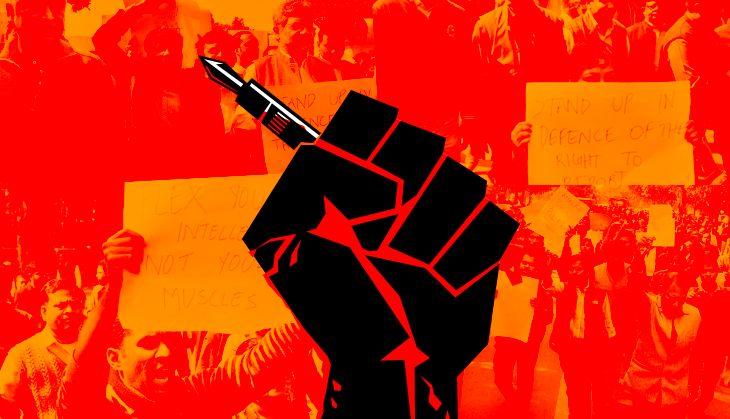
Pakistan’s Increasing Use of PECA to Suppress Free Speech: A Threat to Press Freedom

PPP-PML(N) Alliance Under Strain

Pakistan’s Digital Suppression Costs the Nation Billions and Stalls Economic Growth

The Futility of a National Government in Pakistan’s Political Landscape
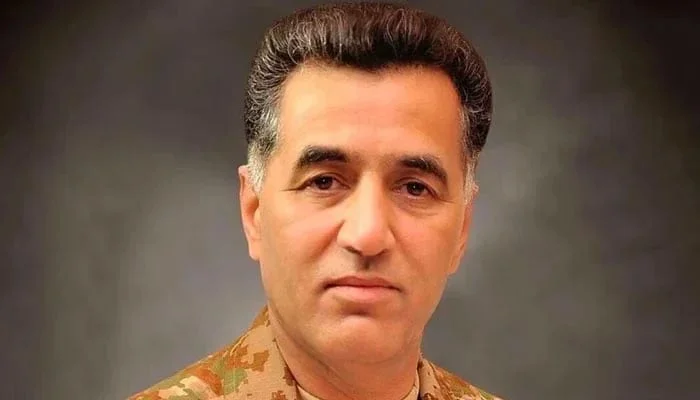
Faiz Hamid’s Trial and the Battle for Institutional Accountability in Pakistan
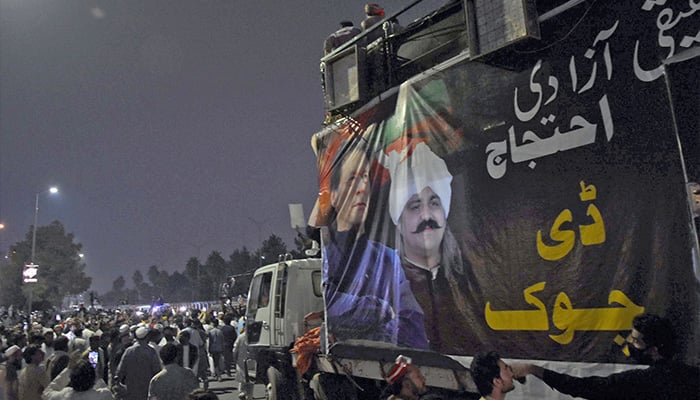
PTI at a Crossroads: From Confrontation to Dialogue?

K-Electric’s Write-Off Claim: Misplaced Priorities Threaten Karachi’s Power Stability
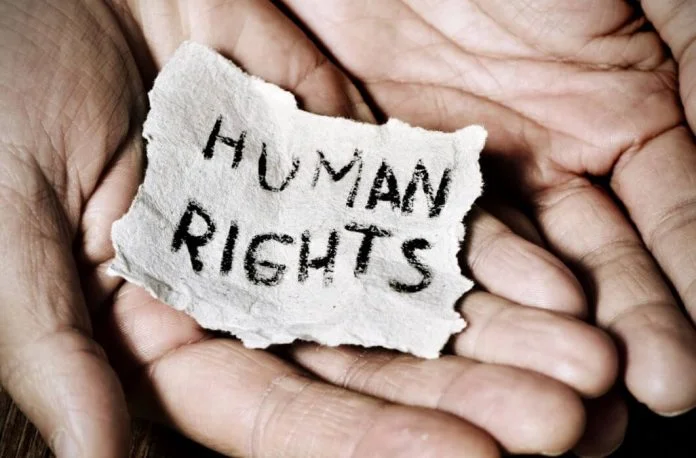
Human Rights Day: Empty Words Amid Global and Local Betrayals

Support our Cause
"Republic Policy Think Tank, a team of dedicated volunteers, is working tirelessly to make Pakistan a thriving republic. We champion reforms, advocate for good governance, and fight for human rights, the rule of law, and a strong federal system. Your contribution, big or small, fuels our fight. Donate today and help us build a brighter future for all."
Qiuck Links
- Op Ed columns
Contact Details

- Editor: +923006650789
- Lahore Office: +923014243788
- E-mail: [email protected]
- Lahore Office # 307, Eden Hights opposite Rafi Group Jail Road
- Islamabad Office: Zafar qamar and Co. Office No. 7, 1st Floor, Qasim Arcade, Street 124, G-13/4 Mini Market, Adjacent to Masjid Ali Murtaza, Islamabad
- Submission Guidelines
- Terms & Conditions
- Privacy & Policy
Copyright © 2024 Republic Policy
| Developed and managed by Abdcorp.co
- Online Nikah Service
- Court Marriage
- Christian Court Marriage
- Nadra Marriage Certificate
- NADRA Birth Certificate
- Divorce Papers
- Khula by Court
- Nadra Divorce Certificate
- Christian Divorce
- Succession Law
- Child Custody
- Landlord & Tenant
- Property Disputes
- Civil Litigation
- Dishonored Cheque
- Online Legal Drafts
- Online Legal Advice
- Arbitration (ADR)
- About Attorney
- FAQ’s

- +92 300 2329223 info@zahidlaw.com
Understand the Constitution of Pakistan 1973 | Law of Writs in Pakistan

The Constitution of the Islamic Republic of Pakistan , adopted in 1973 (hereafter referred to as the Constitution of Pakistan), stands as the cornerstone of the nation’s legal system. This foundational document serves a multitude of purposes: it outlines the framework for governance, establishes the fundamental rights in Pakistan for Pakistani citizens, and defines the structure of the state itself. The Constitution of Pakistan pdf has undergone amendments throughout its history ( total amendments in 1973 constitution of Pakistan ), reflecting Pakistan’s evolving political and social landscape. Understanding this document is paramount for anyone seeking to navigate the intricacies of Pakistan’s legal system.
What the Constitution of Pakistan Guarantees
One of the most crucial aspects of the Constitution of Pakistan is its enshrinement of fundamental rights for all Pakistani citizens ( rights of citizens in Pakistan ). These rights form the bedrock of a just and equitable society, ensuring that every individual is treated with dignity and respect. Some of the key rights guaranteed by the Constitution include:
- Equality before the Law: The principle of equality forms the bedrock of a fair and just society. The Constitution of Pakistan guarantees that all citizens are equal before the law and are entitled to equal protection under it. This means that no individual or group can be discriminated against based on factors such as religion, race, gender, or social status.
- Freedom of Speech and Expression: A fundamental pillar of a democratic society, the freedom of speech and expression allows citizens to freely express their opinions and beliefs without fear of retribution. This right encompasses various forms of expression, including spoken word, written text, and artistic endeavors.
- Right to Life and Liberty: The Constitution of Pakistan recognizes the sanctity of human life and liberty. No person can be deprived of life or liberty except in accordance with the law. This right safeguards individuals from arbitrary arrest, detention, or execution.
- Right to Fair Trial: The right to a fair trial is an essential component of a just legal system. The Constitution guarantees that everyone accused of a crime has the right to a fair and impartial trial before a competent court. This includes the right to be heard, to be represented by legal counsel, and to be presumed innocent until proven guilty.
- Right to Education: Education is recognized as a fundamental right for all citizens in Pakistan. The Constitution emphasizes the importance of education for individual and societal development. This right places an obligation on the state to provide opportunities for education to its citizens.
The First Constitution of Pakistan
Before the adoption of the Constitution of Pakistan 1973 pdf , Pakistan functioned under the Interim Constitution of 1972. This interim document laid the groundwork for the more comprehensive and permanent 1973 Constitution. While the Interim Constitution served a vital purpose during a transitional period, it lacked the detail and depth of its successor. By understanding the evolution of Pakistan’s constitutions, we gain valuable context for interpreting the current legal framework.
The Law of Writs under the Constitution of Pakistan
The Constitution of Pakistan empowers the superior courts of Pakistan to issue writs. These writs are essentially court orders used to enforce fundamental rights in constitution of Pakistan 1973 pdf and ensure that authorities function within their legal bounds. They serve as powerful tools for safeguarding the rights enshrined in the Constitution. Understanding the different types of writs allows citizens to better protect their rights and hold authorities accountable.
Here’s a detailed breakdown of some key writs available under the Pakistani legal system:
Writ of Mandamus: This writ compels a public authority to perform a specific legal duty that they are obligated to fulfill. For example, if a government department is withholding a passport that is rightfully due to a citizen, a writ of mandamus can be used to compel the department to issue the passport.
Writ of Certiorari: This writ allows a higher court to review the proceedings of a lower court or tribunal to ensure that they have acted legally and within their jurisdiction. If a lower court has made a procedural error or exceeded its authority, a writ of certiorari can be used to challenge the decision.
Writ of Habeas Corpus: This writ is a powerful tool for protecting against unlawful detention. It allows a court to inquire into the reasons for a person’s detention and order their release if the detention is found to be illegal. This writ serves as a crucial safeguard against arbitrary arrests and imprisonment.
Writ of Procedendo: Courts can issue a writ of procedendo when a lower court unreasonably delays delivering a judgment. This writ essentially compels the lower court to proceed with delivering a judgment in a timely manner.
Writ of Prohibition: This writ prevents a lower court or tribunal from exceeding its jurisdiction. If a lower court attempts to hear a case that it does not have the authority to hear, a writ of prohibition can be used to stop the proceedings.
Writ of Quo Warranto: The writ of quo warranto is issued against a person who claims or usurps a public office. Through this process, the court inquires ‘by what authority’ the person supports his or her claim.
Other writs: Other writs include audita querela, capias, coram nobis, fieri facias, mittimus, ne exeat republica, praemuire, scire facias, frrts and venire facias etc
The Enduring Legacy of the Constitution of Pakistan
The Constitution of Pakistan stands as a vital document, shaping the nation’s legal and social landscape. It enshrines fundamental rights, outlines the structure of government, and serves as the ultimate authority within the Pakistani legal system. By understanding the Constitution and the concept of writs, citizens gain a deeper appreciation for their rights and the legal mechanisms available to protect them. This knowledge empowers individuals to actively participate in upholding the rule of law and contribute to a more just and equitable society within the framework established by the Constitution of Pakistan.
Free Consultation with Our Expert Lawyers
At Zahid Law Associates , our team of experienced lawyers possesses a deep understanding of the intricacies of the Pakistani Constitution. We’ve been serving clients for over 29 years, navigating complex legal matters and upholding their rights. If you have any questions or require legal guidance, don’t hesitate to contact us for a free consultation. Our team will analyze your situation and provide expert advice to ensure you make informed decisions.
Pakistan: Constitution of 1973
Constitution of Pakistan → Constitution of 1973 (The current constitution of Pakistan)
PREAMBLE OF 1973-CONSTITUTION
The constitutional achievement of Liaquat Ali Khan’s government was ‘Objective Resolution’ passed by the then parliament in 1949. This resolution was ample enough to elaborate the future constitutional policy of Pakistan. Thus, after two decades realizing its importance the government of Z. A. Bhutto adopted it to be made as the ‘Preamble of the Constitution of Pakistan 1973.’ We may say that this preamble is a collection of words indicating the principles used as guidelines by its framers.
INTERPRETATION Osborn Law Dictionary points out the meaning of ‘preamble’ to be ‘the recital set out in the beginning of some Act’. Black’s Law Dictionary reports that, ‘Preamble is a clause at the beginning of constitution or statute, explanatory for reasons of its enactment and the objects sought to be accomplished.’ Political thoughts of Aristotle unfold that he believed constitution to be “An arrangement of the magistracies in a state, especially the highest of all.” Judge Marshall in holding the decision of Marbury v. Madison case defined constitution, “It is a declaration of fundamental laws for the government of the state.”
NATURE OF PREAMBLE OF 1973-CONSTITUTION Preamble of 1973-constitution is a key that opens the door to the rules and regulations of the state. As far as binding nature of this preamble is concerned it’s not legally enforceable.
SIGNIFICANCE OF THE PREAMBLE Preamble to a constitution or statute helps in;
- Pointing out the basis of the law enacted
- Unfolding the objective of the law enforced
- Interpreting the provisions of the statue
- Providing an overview of the constitution
- A blend of historical endeavor and future policies about the subject of the law
- Preamble is the spirit of the constitution
WHAT PRINCIPLES THE PREAMBLE LAYS DOWN IN 1973-CONSTITUTION? The principles used as guidelines in the preamble of the 1973-constitution play important role in shaping all its 280 provisions. These principles are discussed below;
(A) SOVEREIGNTY RESTS WITH THE LORD The primary and fundamental principle mentioned in the preamble is a depiction of the Quran’s verse; “To Him (Allah) belongs the sovereignty of heavens and earth.” The country attained in the name of Allah’s dearest religion Islam endorses one of His principles in the introduction of its constitution in these words; “Entire Universe belongs to Allah Almighty alone.”
(B) DELEGATED AUTHORITY Second, part of this principle notes that, “The authority to be exercised by the people of Pakistan within the limits prescribed by Him is a sacred trust.” This phrase, where on one hand delegates a part of Allah’s sovereignty to the people of Pakistan there on other hand it also checks and circumferences it.
(C) DELEGATED AUTHORITY TO BE EXERCISED BY CHOSEN REPRESENTATIVES Going coherent to the previous principle, here it has been explicitly stated that, “People of Pakistan shall establish an order wherein the state shall exercise its powers through chosen representatives of people.” Here, the preamble has secured two things; one, the democratic system and the other, obedience of the ruler choose by the masses.
(D) ESTABLISHMENT OF AN ORDER OF DEMOCRACY & ISLAMIC TRAITS “Democracy, freedom, equality, tolerance and social justice” are the traits to be enunciated in the system purified by Islam. Not it’s all but the Muslims shall be enabled to ordain their lives in accordance with the teachings of this religion.
(E) SECURING THE ATMOSPHERE SUITABLE TO THE MINORITIES Jinnah’s immense emphasis on the rights of minorities in the newly born Pakistan was still sounding in the parliament that framed ‘objective resolution’ which later became the Preamble of the law of land. It directs for the establishment of ‘adequate provisions to ensure the minorities their right to profess and practice their religions and develop their cultures.’ At another juncture it also hinted about ensuring legitimate interests for depressed classes and minorities.
(F) FORMATION OF FEDERATION Pakistan shall be a federal state ‘wherein the units will be autonomous with boundaries and limitations as may be prescribed.’
(G) GUARANTEED FUNDAMENTAL RIGHTS Preamble has ensured fundamental rights for its citizens and that’s why from Article-9 to Article-28 these have been guaranteed.
(H) INDEPENDENT JUDICIARY Advancement of justice has always been a critical job and to make it simpler a judicial system without the impact of political hierarchy over it is to be built as said in the preamble.
(I) INTEGRATED PAKISTAN Territories of Federal Pakistan shall be integrated to ensure the solidity and indivisibility of the nation.
(J) INTERNATIONAL PEACE, PROGRESS & HAPPINESS OF HUMANITY Preamble has also emphasized on the role of people of Pakistan in international peace, progress and happiness of humanity.
PLEDGE MADE IN THE PREAMBLE In the last part of the preamble, the masses of Pakistan have made a pledge which commences with the words; ‘We the People of Pakistan’ are cognizant of the responsibility before the Almighty and of the sacrifices made in cause of Pakistan. We are faithful to the declaration made by Jinnah that the state would be a democratic Islamic one and are dedicated to preserve it. Finally, they state that, through their representatives in national assembly, they ‘adopt, enact and to give to themselves this constitution.’
Next: Salient Features of 1973 Constitution of Pakistan

IMAGES
COMMENTS
The 1973 constitution was the first in Pakistan to be framed by elected representatives. Unlike the 1962 constitution it gave Pakistan a parliamentary democracy with executive power concentrated in the office of the prime minister, and the formal head of state—the president—limited to acting on the advice of the prime minister. [14]
May 14, 2024 · Promulgated on August 14, 1973, this constitution has played a crucial role in shaping Pakistan’s governance, ensuring the protection of fundamental rights, and maintaining the balance of power among various state institutions. Historical Context. The Constitution of 1973 came into existence following a tumultuous period in Pakistan’s history.
May 4, 2024 · The Constitution of Pakistan 1973 incorporates a comprehensive framework of fundamental rights that are essential for the protection and well-being of its citizens. By guaranteeing rights such as the right to life, liberty, and equality before the law, freedom of speech, expression, and religion, and the right to education, the Constitution ...
April, 1973 and the Assembly published the Constitution of the Islamic Republic of Pakistan. Since then, a number of amendments have been made therein and it has become necessary and expedient that an up-to-date and authentic version of the Constitution be published by the Assembly. This Eighth Edition, which is intended to provide an updated ...
On 7th April, 1972 the national assembly of Pakistan appointed a committee to prepare a draft of the permanent constitution of Pakistan. A bill to provide a constitution was introduced by the committee in the Assembly on February2, 1973. The Assembly passed the bill on 10th April, 1973 and at last the constitution came into force on 14th August ...
April, 1973 and the Assembly published the Constitution of the Islamic Republic of Pakistan. Since then, a number of amendments have been made therein and it has become necessary and expedient that an up-to-date and authentic version of the Constitution be published by the Assembly. This Eighth Edition, which is intended to provide an updated
1. INTRODUCTION: Constitution of 1973 has more Islamic approach than the past two constitutions of Pakistan. In this current constitution, emphasis was made to inaugurate a real Islamic system in all facets of social life.
Mar 5, 2024 · The Constitution of the Islamic Republic of Pakistan, adopted in 1973, serves as the supreme law of the land. This research article analyzes the core themes embedded within this foundational document, critically examining their role in shaping Pakistan’s governance and society.
The Constitution of the Islamic Republic of Pakistan, adopted in 1973 (hereafter referred to as the Constitution of Pakistan), stands as the cornerstone of the nation’s legal system. This foundational document serves a multitude of purposes: it outlines the framework for governance, establishes the fundamental rights in Pakistan for Pakistani ...
The constitutional achievement of Liaquat Ali Khan’s government was ‘Objective Resolution’ passed by the then parliament in 1949. This resolution was ample enough to elaborate the future constitutional policy of Pakistan. Thus, after two decades realizing its importance the government of Z. A. Bhutto adopted it to be made as the ...